Best Universities for Neuroscience in Europe
Updated: February 29, 2024
- Art & Design
- Computer Science
- Engineering
- Environmental Science
- Liberal Arts & Social Sciences
- Mathematics
Below is a list of best universities in Europe ranked based on their research performance in Neuroscience. A graph of 79.6M citations received by 2.61M academic papers made by 1,184 universities in Europe was used to calculate publications' ratings, which then were adjusted for release dates and added to final scores.
We don't distinguish between undergraduate and graduate programs nor do we adjust for current majors offered. You can find information about granted degrees on a university page but always double-check with the university website.

1. University College London
For Neuroscience

2. University of Oxford

3. University of Cambridge

4. Karolinska Institute
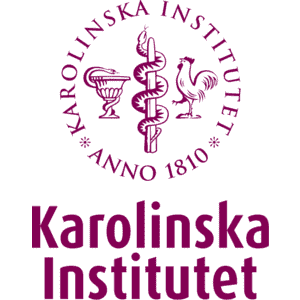
5. King's College London

6. Heidelberg University - Germany

7. Pierre and Marie Curie University

8. Radboud University

9. University of Zurich
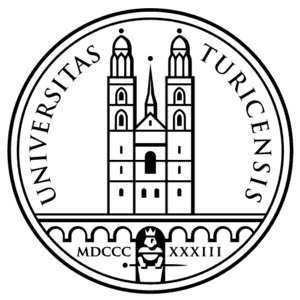
10. Lund University
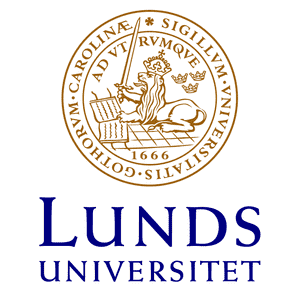
11. University of Amsterdam

12. University of Edinburgh

13. University of Munich

14. Catholic University of Leuven

15. University of Manchester

16. Charite - Medical University of Berlin

17. University of Tubingen

18. University of Copenhagen

19. Imperial College London

20. University of Milan
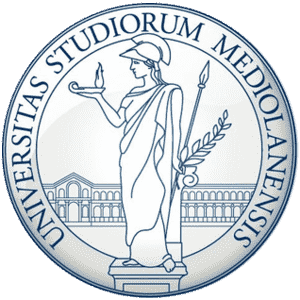
21. University of Groningen

22. University of Gothenburg
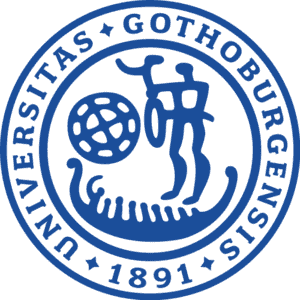
23. University of Bristol

24. University of Helsinki

25. Sapienza University of Rome

26. Goethe University of Frankfurt am Main

27. Utrecht University

28. University of Gottingen

29. Maastricht University

30. University of Hamburg

31. University of Oslo

32. Heinrich Heine University of Dusseldorf

33. University of Birmingham

34. University of Padua

35. University of Freiburg

36. University of Bonn

37. University of Liverpool

38. Federal Institute of Technology Lausanne

39. University of Geneva

40. University of Barcelona

41. Uppsala University
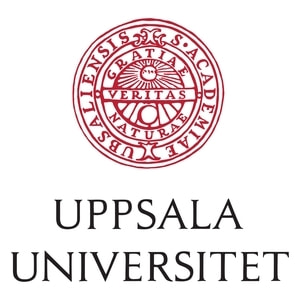
42. University of Bologna
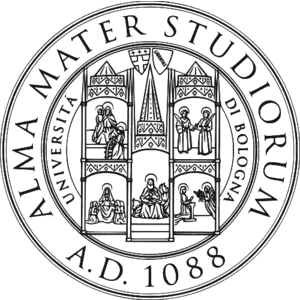
43. Free University Amsterdam

44. University of Glasgow

45. University of Nottingham

46. Johannes Gutenberg University Mainz

47. University of Wurzburg

48. Technical University of Munich

49. University of Liege

50. Claude Bernard University Lyon 1

51. University of Sheffield

52. University of Bern

53. University of Bordeaux

54. Free University of Berlin

55. Cardiff University

56. University of Erlangen Nuremberg

57. Leiden University
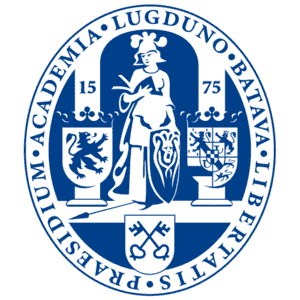
58. Newcastle University

59. Aarhus University
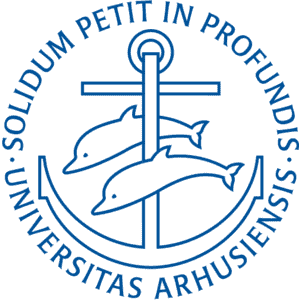
60. Ruhr University Bochum

61. University of Lausanne
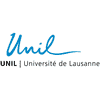
62. University of Cologne

63. Erasmus University Rotterdam

64. Swiss Federal Institute of Technology Zurich

65. Humboldt University of Berlin

66. Medical University of Vienna

67. University of Vienna
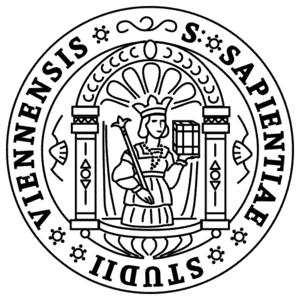
68. University of Basel
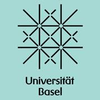
69. University of Florence

70. University of Southampton

71. University of Marburg

72. University of Turin

73. Trinity College Dublin, University of Dublin

74. University of Lubeck

75. University of Munster
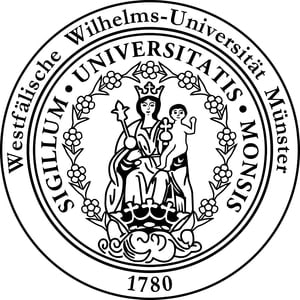
76. University of Leeds

77. University of Ulm
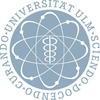
78. University of Pisa

79. Autonomous University of Barcelona

80. Complutense University of Madrid
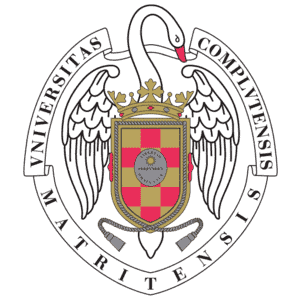
81. Umea University

82. Ghent University

83. University of Leipzig

84. Hannover Medical School

85. University of London

86. RWTH Aachen University
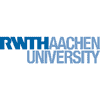
87. Norwegian University of Science and Technology

88. University of Aberdeen

89. University of Bergen

90. University of Antwerp

91. Catholic University of the Sacred Heart
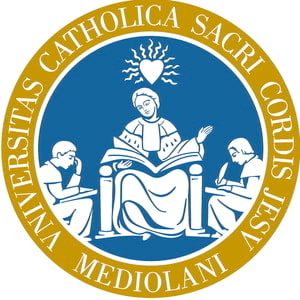
92. University of Sussex

93. Autonomous University of Madrid

94. Dresden University of Technology

95. Free University of Brussels
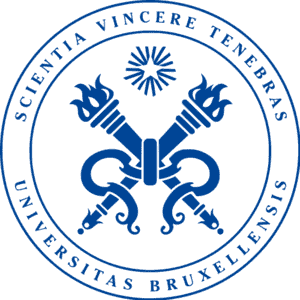
96. University of Cagliari
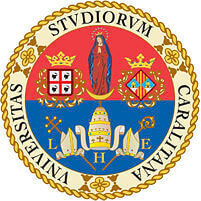
97. University of Parma
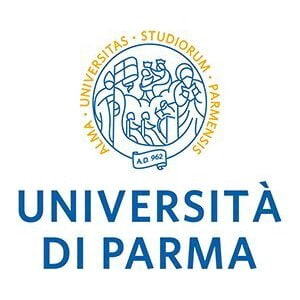
98. Federico II University of Naples

99. University of Turku

100. University of Genoa

Biology subfields in Europe

The EPFL PhD Program in Neuroscience (EDNE) provides its students with extensive training in various fields of neurosciences, ranging from molecular, cellular, circuit, computational, cognitive and behavioral neurosciences to neuroprosthetics and neuroengineering.
Students matriculate in the highly dynamic and interdisciplinary environment of the EPFL, in the Brain Mind Institute , the Neuro-X Institute , the Blue Brain Project , or in other research groups affiliated to our program.
Furthermore, there is a close cooperation between EDNE and the Neuroscience doctoral programs of the University of Lausanne and the University of Geneva ( LN Doctoral School ).
|
|

EDNE AWARDS
Upcoming public defense.
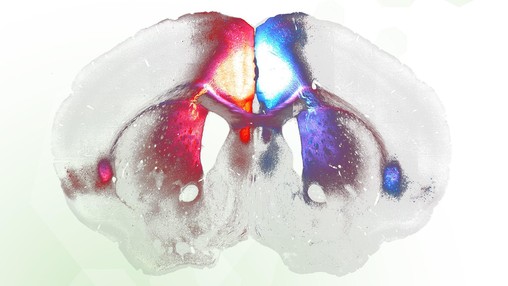
- Denna sida på svenska
- Neurovetenskap startsida
- ki.se startsida
Doctoral programme in Neuroscience
The doctoral programme in neuroscience provides learning activities in neuroscience, including cellular/molecular neuroscience, circuits and systems, cognition and behavior, and mechanisms of neurological and psychiatric disorders. We welcome all interested doctoral students to courses and other activities organized by the programme.

Programme overview
A significant part of the Research at Karolinska Institutet deals with the normal function or pathology of the nervous system. Doctoral students are trained within the different neuroscience disciplines in research groups at eight departments. The inter-departmental "Doctoral Programme in Neuroscience" organizes courses and supports other activities.
Annual Courses
In the beginning of each fall a package of four courses, the "Frontiers Courses in Neuroscience", is given. You may apply to all courses or select individual courses.
We especially recommend doctoral students in the beginning of their training period to apply to all courses. This will quickly give you a broad knowledge base and make you acquainted with many neuroscientists at KI.
Frontiers courses in Neurosciences
- The Developing Brain
- Brain Circuits
- Functional Cognitive Neuroanatomy
- Neurodegenerative Disorders i: Genes, Mechanisms and Clinical Aspects
Other Courses
A number of other specialized and general courses are also given each semester and will be announced in the course catalogue for doctoral courses .
Basic Human Neuroscience
We can now offer a seven (7)-week course in Basic Human Neuroscience for doctoral students without a basic training in biomedicine/medicine. This course follows the curriculum of the biomedicine programme at Karolinska Institutet. It will be given every fall semester and will be announced in the course catalogue .
If you have studied basic neuroscience but feel that you need to refresh your knowledge, we recommend the free online course in Medical Neuroscience organised by Duke University.
Log in to Coursera.org , register and search for Medical Neuroscience .
Proposals for new courses
We welcome proposals for new courses within the neuroscience area that you feel would be valuable. Proposals should include the theme of the course and possible course organizers (within KI) and other possible teachers. Send proposals to Lennart Brodin , e-mail: [email protected] .
Activities organized by doctoral students
The programme supports activities aimed at promoting neuroscience and networking among doctoral students.
Send proposals to: Lennart Brodin
Neuroscience seminar series for doctoral students
Application and admission to courses on doctoral level.
Application to courses is made directly in the Course catalogue at Karolinska Institutet. The available courses at the doctoral level are announced once per semester. The catalogue for courses is published on ki.se around 15 April respectively 15 October and is open for application during one month.
Find the courses within the programme of Neuroscience by selecting Doctoral programme in the course catalogue .
After the application period is closed the applicant can only be admitted according to availability. A late application is made directly to the course organizer. KI's courses are open for registered doctoral students at all universities and colleges. If space allows, other applicants may also be accepted.
Formal note about admission (or not) is emailed to the applicants within a month after the application time is closed. If you are not admitted, you will be asked for interest to be on the waiting list. The applicant needs to confirm participation by a form signed by the applicant and his/hers supervisor.
All syllabi for courses at doctoral level at KI are collected in the course catalogue for doctoral courses .
Steering group
- Lennart Brodin (Coordinator and Chair), Department of Neuroscience
- Daniel Ferreira Padilla , Department of Neurobiology, Care Sciences and Society
- Nicolas Ruffin , Department of Clinical Neuroscience, CMM
- Sophia Schedin Weiss , Department of Neurobiology, Care Sciences and Society
- Johan Lundström , Department of Clinical Neuroscience
- Karima Chergui , Department of Physiology & Pharmacology
- Tobias Karlsson , Department of Neuroscience
- Alina Aaltonen , (PhD student representative), Department of Neuroscience
- Ljerka Delac , (PhD student representative), Department of Neurobiology, Care Sciences and Society
- Victoria Balabanova , (Programme administrator), Department of Neuroscience
Collaboration
We collaborate with the Strategic Research Area in Neuroscience (StratNeuro).
Department of Neuroscience is the host department for the programme
Postal address:.
Karolinska Institutet Department of Neuroscience 171 77 Stockholm Sweden
Visiting address:
Biomedicum Solnavägen 9 171 65 Solna
Lennart Brodin
Victoria Balabanova

DPhil in Clinical Neurosciences
- Entry requirements
- Funding and Costs
College preference
- How to Apply
About the course
The DPhil in Clinical Neurosciences offers excellent opportunities for high quality research training, for both clinical and non-clinical graduates, in wide-ranging leading areas of clinical neuroscience.
As a doctoral student in NDCN you will be a part of one of the leading and largest clinical neuroscience departments in Europe. The DPhil in Clinical Neurosciences will develop your skills through a range of research and practical training.
NDCN incorporates six divisions each of which hosts world-leading programmes in basic, translational and clinical research.
- Centre for Prevention of Stroke and Dementia
- Division of Clinical Neurology
- MRC Brain Network Dynamics Unit
- Nuffield Division of Anaesthetics
- Nuffield Laboratory of Ophthalmology
- Wellcome Centre for Integrative Neuroimaging
You will be admitted directly to a particular research area and you will work alongside your supervisors to develop your programme of study which is normally part of a larger research group with shared interests. You will not normally do laboratory rotations.
There are no taught courses examined by written papers but there is a wide range of courses and workshops available across the Medical Sciences Division and you will be encouraged to attend regular departmental and divisional seminars.
Part-time study
It is possible to study for a doctorate on a part-time basis. Completing the DPhil on a part-time basis normally requires between six and eight years of study, compared with a full-time DPhil which normally takes three to four years to complete.
For part-time students on this course, attendance is required for a minimum of thirty days of university-based work each year, to be arranged with the agreement of their supervisor(s), for the period that their names remain on the Register of Graduate Students, unless individually dispensed by the Board. During a candidate’s probationary period the attendance arrangements must take account of relevant induction and training events scheduled by the Board. You will have the opportunity to tailor your part-time research in liaison with your supervisor and agree your pattern of attendance.
Supervision
Once enrolled on the DPhil, the allocation of graduate supervision for this course is the responsibility of the Nuffield Department of Clinical Neurosciences and it is not always possible to accommodate the preferences of incoming graduate students to work with a particular member of staff. Under exceptional circumstances a supervisor may be found outside the Nuffield Department of Clinical Neurosciences.
Information about supervisors connected with this course can be found on the NDCN website. In the case of students who require specific help to adjust to an academic programme or to a new range of skills, the supervisor will work with them to ensure that they have additional support. The department is often able to financially support the undertaking of formal skills training that is essential to the successful completion of the DPhil.
In line with the Divisional Code of Practice for supervisors, formal meetings outside the lab between student and supervisor should take place at least once per term (so 3 times per year) whereas meetings with day-to-day supervisors should take place much more frequently (c 26 times per year, equating to roughly fortnightly). The Graduate Supervision Reporting (GSR) system asks both students and supervisors to record the frequency of meetings during the term retrospectively being reported on.
You will begin your course as a probationary research student (PRS) and you will be monitored and assessed regularly via completion of termly reports by you and your supervisors through the Graduate Supervision Reporting (GSR) system.
You will be expected to transfer your status from PRS to DPhil (PhD) before the end of your fourth term if you are a full-time student. Part-time students must complete a minimum of four terms before applying for transfer, with a maximum time limit of eight terms. For this, you will be required to submit a written report summarising your progress to date, which you will then discuss and defend in an oral examination (a transfer viva).
During your third year you will need to confirm your DPhil status through a formal assessment to ensure that you are on course to complete your studies within the three- to four-year time frame expected for a full-time student. You will be expected to confirm your status before the end of your ninth term if you are a full-time student. Part-time students have a corresponding maximum limit of 18 terms to confirm status. You will be required to give a presentation and attend an interview.
The doctoral work will culminate in a thesis that will be defended in an oral examination ( viva voce ) after three or at most four years from the date of admission.
Graduate destinations
Past students from the Department of Clinical Neurosciences have gone on to careers based both in the UK and other countries in teaching and research in universities or back to clinical posts. You can find a number of alumni profiles on the NDCN website.
Changes to this course and your supervision
The University will seek to deliver this course in accordance with the description set out in this course page. However, there may be situations in which it is desirable or necessary for the University to make changes in course provision, either before or after registration. The safety of students, staff and visitors is paramount and major changes to delivery or services may have to be made in circumstances of a pandemic, epidemic or local health emergency. In addition, in certain circumstances, for example due to visa difficulties or because the health needs of students cannot be met, it may be necessary to make adjustments to course requirements for international study.
Where possible your academic supervisor will not change for the duration of your course. However, it may be necessary to assign a new academic supervisor during the course of study or before registration for reasons which might include illness, sabbatical leave, parental leave or change in employment.
For further information please see our page on changes to courses and the provisions of the student contract regarding changes to courses.
Entry requirements for entry in 2024-25
Proven and potential academic excellence.
The requirements described below are specific to this course and apply only in the year of entry that is shown. You can use our interactive tool to help you evaluate whether your application is likely to be competitive .
Please be aware that any studentships that are linked to this course may have different or additional requirements and you should read any studentship information carefully before applying.
Degree-level qualifications
As a minimum, applicants should hold or be predicted to achieve the following UK qualifications or their equivalent:
- a first-class or strong upper second-class undergraduate degree with honours in a relevant discipline (eg neuroscience).
However, entrance is very competitive and most successful applicants have a first-class degree or the equivalent.
A master's degree is not a prerequisite for admission.
For applicants with a degree from the USA, the minimum GPA sought is 3.5 out of 4.0.
If your degree is not from the UK or another country specified above, visit our International Qualifications page for guidance on the qualifications and grades that would usually be considered to meet the University’s minimum entry requirements.
GRE General Test scores
No Graduate Record Examination (GRE) or GMAT scores are sought.
Other qualifications, evidence of excellence and relevant experience
- Evidence of a prior interest in the area of research proposed may be an advantage.
- Publications are not expected as part of the interview process.
English language proficiency
This course requires proficiency in English at the University's standard level . If your first language is not English, you may need to provide evidence that you meet this requirement. The minimum scores required to meet the University's standard level are detailed in the table below.
| Test | Minimum overall score | Minimum score per component |
|---|---|---|
| IELTS Academic (Institution code: 0713) | 7.0 | 6.5 |
TOEFL iBT, including the 'Home Edition' (Institution code: 0490) | 100 | Listening: 22 Reading: 24 Speaking: 25 Writing: 24 |
| C1 Advanced* | 185 | 176 |
| C2 Proficiency | 185 | 176 |
*Previously known as the Cambridge Certificate of Advanced English or Cambridge English: Advanced (CAE) † Previously known as the Cambridge Certificate of Proficiency in English or Cambridge English: Proficiency (CPE)
Your test must have been taken no more than two years before the start date of your course. Our Application Guide provides further information about the English language test requirement .
Declaring extenuating circumstances
If your ability to meet the entry requirements has been affected by the COVID-19 pandemic (eg you were awarded an unclassified/ungraded degree) or any other exceptional personal circumstance (eg other illness or bereavement), please refer to the guidance on extenuating circumstances in the Application Guide for information about how to declare this so that your application can be considered appropriately.
You will need to register three referees who can give an informed view of your academic ability and suitability for the course. The How to apply section of this page provides details of the types of reference that are required in support of your application for this course and how these will be assessed.
Supporting documents
You will be required to supply supporting documents with your application. The How to apply section of this page provides details of the supporting documents that are required as part of your application for this course and how these will be assessed.
Performance at interview
Interviews are normally held as part of the admissions process, and can be online or in person. Interviews following the December application deadline are expected to take place around the middle of January each year. Interviews typically last for 20-30 minutes.
There will be a minimum of three academics on the panel and details of the interview format will be provided to you after shortlisting.
How your application is assessed
Your application will be assessed purely on your proven and potential academic excellence and other entry requirements described under that heading.
References and supporting documents submitted as part of your application, and your performance at interview (if interviews are held) will be considered as part of the assessment process. Whether or not you have secured funding will not be taken into consideration when your application is assessed.
An overview of the shortlisting and selection process is provided below. Our ' After you apply ' pages provide more information about how applications are assessed .
Shortlisting and selection
Students are considered for shortlisting and selected for admission without regard to age, disability, gender reassignment, marital or civil partnership status, pregnancy and maternity, race (including colour, nationality and ethnic or national origins), religion or belief (including lack of belief), sex, sexual orientation, as well as other relevant circumstances including parental or caring responsibilities or social background. However, please note the following:
- socio-economic information may be taken into account in the selection of applicants and award of scholarships for courses that are part of the University’s pilot selection procedure and for scholarships aimed at under-represented groups ;
- country of ordinary residence may be taken into account in the awarding of certain scholarships; and
- protected characteristics may be taken into account during shortlisting for interview or the award of scholarships where the University has approved a positive action case under the Equality Act 2010.
Initiatives to improve access to graduate study
This course is taking part in a continuing pilot programme to improve the selection procedure for graduate applications, in order to ensure that all candidates are evaluated fairly.
For this course, socio-economic data (where it has been provided in the application form) will be used to contextualise applications at the different stages of the selection process. Further information about how we use your socio-economic data can be found in our page about initiatives to improve access to graduate study.
Processing your data for shortlisting and selection
Information about processing special category data for the purposes of positive action and using your data to assess your eligibility for funding , can be found in our Postgraduate Applicant Privacy Policy.
Admissions panels and assessors
All recommendations to admit a student involve the judgement of at least two members of the academic staff with relevant experience and expertise, and must also be approved by the Director of Graduate Studies or Admissions Committee (or equivalent within the department).
Admissions panels or committees will always include at least one member of academic staff who has undertaken appropriate training.
Other factors governing whether places can be offered
The following factors will also govern whether candidates can be offered places:
- the ability of the University to provide the appropriate supervision for your studies, as outlined under the 'Supervision' heading in the About section of this page;
- the ability of the University to provide appropriate support for your studies (eg through the provision of facilities, resources, teaching and/or research opportunities); and
- minimum and maximum limits to the numbers of students who may be admitted to the University's taught and research programmes.
Offer conditions for successful applications
If you receive an offer of a place at Oxford, your offer will outline any conditions that you need to satisfy and any actions you need to take, together with any associated deadlines. These may include academic conditions, such as achieving a specific final grade in your current degree course. These conditions will usually depend on your individual academic circumstances and may vary between applicants. Our ' After you apply ' pages provide more information about offers and conditions .
In addition to any academic conditions which are set, you will also be required to meet the following requirements:
Financial Declaration
If you are offered a place, you will be required to complete a Financial Declaration in order to meet your financial condition of admission.
Disclosure of criminal convictions
In accordance with the University’s obligations towards students and staff, we will ask you to declare any relevant, unspent criminal convictions before you can take up a place at Oxford.
Academic Technology Approval Scheme (ATAS)
Some postgraduate research students in science, engineering and technology subjects will need an Academic Technology Approval Scheme (ATAS) certificate prior to applying for a Student visa (under the Student Route) . For some courses, the requirement to apply for an ATAS certificate may depend on your research area.
The Nuffield Department of Clinical Neurosciences provides a focus for world-leading translational neuroscience allowing the swift transfer of basic biomedical findings to the clinical setting and the delivery of evidence-based therapies for the benefit of society and the economy.
The department has state-of-the-art laboratories with most of its staff housed in the West Wing and the adjacent WIN (Wellcome Centre for Integrative Neuroimaging) building at the John Radcliffe Hospital site. The West Wing also includes the in- and outpatient facilities for the clinical Departments of Neurology, Neurosurgery, Neuroanaesthetics, Ophthalmology and ENT, which are closely integrated with NDCN. This provides the perfect setting to share facilities, expertise and knowledge.
NDCN offers you excellent opportunities for high quality research training in wide-ranging leading areas of clinical neuroscience. Much of the graduate research in the department is interdisciplinary and in collaboration with research leaders at other research centres. In addition, the department as a whole sponsors regular seminars and public lectures which attract distinguished national and international speakers.
Students will have access to the department’s IT support and University library services. Workspace will be related to individual circumstances: if undertaking experimental work, bench space will be provided within a laboratory; if undertaking theoretical research, there will be shared office space. The provision of other resources specific to a project should be agreed with the supervisor as part of the planning stages of the agreed project as financial support from the department must not be assumed.
Nuffield Department of Clinical Neurosciences
The Nuffield Department of Clinical Neurosciences (NDCN) comprises more than 500 staff including over 150 graduate students. The DPhil and the MSc (Res) in Clinical Neurosciences cover all areas of the research carried out in the department.
NDCN was formed in November 2010 and incorporates the Centre for Prevention of Stroke and Dementia, the Division of Clinical Neurology, the MRC Brain Network Dynamics Unit, the Nuffield Division of Anaesthetics, the Nuffield Laboratory of Ophthalmology (which also houses sleep medicine research) and the Wellcome Centre for Integrative Neuroimaging.
The department usually admits over 30 postgraduate research students per year, from both scientific and clinical backgrounds. Each research student will work on a specified research project with close supervision from one or more of the department’s principal investigators and their teams, and become part of a vibrant research community both within the department and the wider University. The department's sleep medicine course admits c. 15-20 postgraduate taught students per year across the MSc, PGDip and standalone modular routes.
View all courses View taught courses View research courses
The University expects to be able to offer over 1,000 full or partial graduate scholarships across the collegiate University in 2024-25. You will be automatically considered for the majority of Oxford scholarships , if you fulfil the eligibility criteria and submit your graduate application by the relevant December or January deadline. Most scholarships are awarded on the basis of academic merit and/or potential.
For further details about searching for funding as a graduate student visit our dedicated Funding pages, which contain information about how to apply for Oxford scholarships requiring an additional application, details of external funding, loan schemes and other funding sources.
Please ensure that you visit individual college websites for details of any college-specific funding opportunities using the links provided on our college pages or below:
Please note that not all the colleges listed above may accept students on this course. For details of those which do, please refer to the College preference section of this page.
Further information about funding opportunities for this course can be found on the department's website for both divisional funding and external funding .
Annual fees for entry in 2024-25
Full-time study.
| Home | £10,070 |
| Overseas | £33,370 |
IMPORTANT : Please note that while most of the content of these pages relates to the course starting in 2024-25, this information about course fees and the additional information section on this page relate to entry in 2025-26 . The remaining content will be updated for 2025-26 entry later in September.
| Home | £5,035 |
| Overseas | £16,685 |
Information about course fees
Course fees are payable each year, for the duration of your fee liability (your fee liability is the length of time for which you are required to pay course fees). For courses lasting longer than one year, please be aware that fees will usually increase annually. For details, please see our guidance on changes to fees and charges .
Course fees cover your teaching as well as other academic services and facilities provided to support your studies. Unless specified in the additional information section below, course fees do not cover your accommodation, residential costs or other living costs. They also don’t cover any additional costs and charges that are outlined in the additional information below.
Continuation charges
Following the period of fee liability , you may also be required to pay a University continuation charge and a college continuation charge. The University and college continuation charges are shown on the Continuation charges page.

Where can I find further information about fees?
The Fees and Funding section of this website provides further information about course fees , including information about fee status and eligibility and your length of fee liability .
Additional information
There are no compulsory elements of this course that entail additional costs beyond fees (or, after fee liability ends, continuation charges) and living costs. However, please note that, depending on your choice of research topic and the research required to complete it, you may incur additional expenses, such as travel expenses, research expenses, and field trips. You will need to meet these additional costs, although you may be able to apply for funding from your department and/or college to help you cover some of these expenses.
Please note that you are required to attend in Oxford for a minimum of 30 days each year, and you may incur additional travel and accommodation expenses for this. Also, depending on your choice of research topic and the research required to complete it, you may incur further additional expenses, such as travel expenses, research expenses, and field trips. You will need to meet these additional costs, although you may be able to apply for funding from your department and/or college to help you cover some of these expenses.
Living costs
In addition to your course fees, you will need to ensure that you have adequate funds to support your living costs for the duration of your course.
For the 2024-25 academic year, the range of likely living costs for full-time study is between c. £1,345 and £1,955 for each month spent in Oxford. Full information, including a breakdown of likely living costs in Oxford for items such as food, accommodation and study costs, is available on our living costs page. The current economic climate and high national rate of inflation make it very hard to estimate potential changes to the cost of living over the next few years. When planning your finances for any future years of study in Oxford beyond 2024-25, it is suggested that you allow for potential increases in living expenses of around 5% each year – although this rate may vary depending on the national economic situation. UK inflationary increases will be kept under review and this page updated.
If you are studying part-time your living costs may vary depending on your personal circumstances but you must still ensure that you will have sufficient funding to meet these costs for the duration of your course.
Students enrolled on this course will belong to both a department/faculty and a college. Please note that ‘college’ and ‘colleges’ refers to all 43 of the University’s colleges, including those designated as societies and permanent private halls (PPHs).
If you apply for a place on this course you will have the option to express a preference for one of the colleges listed below, or you can ask us to find a college for you. Before deciding, we suggest that you read our brief introduction to the college system at Oxford and our advice about expressing a college preference . For some courses, the department may have provided some additional advice below to help you decide.
The following colleges accept students for full-time study on this course:
- Balliol College
- Brasenose College
- Christ Church
- Corpus Christi College
- Exeter College
- Green Templeton College
- Harris Manchester College
- Hertford College
- Jesus College
- Keble College
- Kellogg College
- Lady Margaret Hall
- Linacre College
- Lincoln College
- Magdalen College
- Merton College
- New College
- Oriel College
- Pembroke College
- The Queen's College
- Reuben College
- St Anne's College
- St Catherine's College
- St Cross College
- St Edmund Hall
- St Hilda's College
- St Hugh's College
- St John's College
- St Peter's College
- Somerville College
- Trinity College
- University College
- Wadham College
- Wolfson College
- Worcester College
- Wycliffe Hall
The following colleges accept students for part-time study on this course:
Before you apply
We strongly recommend you consult the Medical Sciences Graduate School's research themes to identify the most suitable course and supervisor .
Our guide to getting started provides general advice on how to prepare for and start your application. You can use our interactive tool to help you evaluate whether your application is likely to be competitive .
If it's important for you to have your application considered under a particular deadline – eg under the December deadline in order to be considered for Oxford scholarships – we recommend that you aim to complete and submit your application at least two weeks in advance . Check the deadlines on this page and the information about deadlines and when to apply in our Application Guide.
Application fee waivers
An application fee of £75 is payable for each application to this course. Application fee waivers are available for the following applicants who meet the eligibility criteria:
- applicants from low-income countries;
- refugees and displaced persons;
- UK applicants from low-income backgrounds; and
- applicants who applied for our Graduate Access Programmes in the past two years and met the eligibility criteria.
You are encouraged to check whether you're eligible for an application fee waiver before you apply.
Readmission for current Oxford graduate taught students
If you're currently studying for an Oxford graduate taught course and apply to this course with no break in your studies, you may be eligible to apply to this course as a readmission applicant. The application fee will be waived for an eligible application of this type. Check whether you're eligible to apply for readmission .
Application fee waivers for eligible associated courses
If you apply to this course and up to two eligible associated courses from our predefined list during the same cycle, you can request an application fee waiver so that you only need to pay one application fee.
The list of eligible associated courses may be updated as new courses are opened. Please check the list regularly, especially if you are applying to a course that has recently opened to accept applications.
Do I need to contact anyone before I apply?
Before you apply, you should identify an academic member of staff who is willing to supervise you and has the resources to support your proposed research project. You should do this by contacting them directly. Details of academic staff, including their research interests and contact details, can be found on the department's website.
If you are unsure of who you might contact as a potential supervisor, please contact the NDCN Academic Administration team in the first instance.
When you have made a shortlist of up to three potential supervisors, you must email them individually and explain clearly:
- what your academics background is; and
- what kind of research you are interested in.
They will then confirm whether or not they are happy to be listed as the proposed supervisor on the application form. Note that proposed supervisors will be asked to confirm their support for your application after the department receives your application, so it is in your best interest to make sure you have their agreement before applying. Please note that the support of a supervisor at this stage does not imply that you will be admitted.
Please note, you should only submit your application once you have secured the support of a prospective supervisor at NDCN and agreed a proposed research project.
Completing your application
You should refer to the information below when completing the application form, paying attention to the specific requirements for the supporting documents .
For this course, the application form will include questions that collect information that would usually be included in a CV/résumé. You should not upload a separate document. If a separate CV/résumé is uploaded, it will be removed from your application .
If any document does not meet the specification, including the stipulated word count, your application may be considered incomplete and not assessed by the academic department. Expand each section to show further details.
Please note, the Nuffield Department of Clinical Neurosciences does not ask for any written work as part of the admissions process. Individual supervisors may ask to see written work when an initial enquiry is made by a prospective student.
Proposed field and title of research project
Proposed supervisor, referees three overall, academic and/or professional.
Whilst you must register three referees, the department may start the assessment of your application if two of the three references are submitted by the course deadline and your application is otherwise complete. Please note that you may still be required to ensure your third referee supplies a reference for consideration.
You may use either academic of professional references.
Your references will support intellectual ability, academic achievement, motivation, and ability to work in a group.
Official transcript(s)
Your transcripts should give detailed information of the individual grades received in your university-level qualifications to date. You should only upload official documents issued by your institution and any transcript not in English should be accompanied by a certified translation.
More information about the transcript requirement is available in the Application Guide.
Statement of purpose/personal statement and research proposal: A maximum of 500 words each
Your statement of purpose/personal statement and research proposal should be submitted as a single, combined document with clear subheadings. Please ensure that the word counts for each section are clearly visible in the document.
Statement of purpose/personal statement
You should provide a statement of your research interests, in English, describing how your background and research interests relate to the programme. If possible, please ensure that the word count is clearly displayed on the document.
The statement should focus on academic or research-related achievements and interests rather than personal achievements and interests.
This will be assessed for:
- your reasons for applying;
- evidence of motivation for and understanding of the proposed area of study;
- the ability to present a reasoned case in English;
- capacity for sustained and focused work; and
- understanding of problems in the area and ability to construct and defend an argument.
It will be normal for students’ ideas and goals to change in some ways as they undertake their studies, but your personal statement will enable you to demonstrate your current interests and aspirations.
Research proposal
A research proposal comprising a detailed outline of your proposed research, written in English, is required. It is expected that you will prepare your research proposal in consultation with a potential supervisor.
Any bibliography or brief footnotes should not be included in the word count.
If possible, please ensure that the word count is clearly displayed on the document.
- the coherence of the proposal
- the originality of the project
- an understanding of the proposed area of study
- the feasibility of successfully completing the project in the time available (a maximum of four years for the full-time course; eight years for the part-time course)
- knowledge of research techniques and suitability to undertake the proposed work.
It will be normal for your ideas subsequently to change in some ways as you investigate the evidence and develop your project. You should nevertheless make the best effort you can to demonstrate the extent of your research question, sources and method at this moment.
Your proposal should focus on research rather than personal achievements, interests and aspirations.
Submissions that exceed the word count may be penalised.
Start or continue your application
You can start or return to an application using the relevant link below. As you complete the form, please refer to the requirements above and consult our Application Guide for advice .
Application Guide Apply - Full time Apply - Part time
ADMISSION STATUS
Closed to applications for entry in 2024-25
Register to be notified via email when the next application cycle opens (for entry in 2025-26)
12:00 midday UK time on:
Friday 1 December 2023 Latest deadline for most Oxford scholarships
A later deadline shown under 'Admission status' If places are still available, applications may be accepted after 1 December . The 'Admissions status' (above) will provide notice of any later deadline.
| Full Time | Part Time | |
|---|---|---|
| Course code | RD_CU1 | RD_CU9P1 |
| Expected length | 3-4 years | 6-8 years |
| Places in 2024-25 | c. 32 | c. 1 |
| Applications/year* | 112 | 5 |
| Expected start | ||
| English language | ||
*Three-year average (applications for entry in 2021-22 to 2023-24)
Further information and enquiries
This course is offered by the Nuffield Department of Clinical Neurosciences
- Course page on the department's website
- Funding information from the department
- Academic and research staff
- Departmental research and potential projects
- Medical Sciences Graduate School
- Residence requirements for full-time courses
- Postgraduate applicant privacy policy
Course-related enquiries
Advice about contacting the department can be found in the How to apply section of this page
✉ [email protected]
Application-process enquiries
See the application guide
Other courses to consider
You may also wish to consider applying to other courses that are similar or related to this course:
View related courses
Visa eligibility for part-time study
We are unable to sponsor student visas for part-time study on this course. Part-time students may be able to attend on a visitor visa for short blocks of time only (and leave after each visit) and will need to remain based outside the UK.
- ENLIGHTEN THE FUTURE

Neuroscience
The Graduate School of Neuroscience aims to educate and train future highly qualified neuroscientists and provides outstanding research Master and PhD programmes to cover all aspects of neurosciences in an international and stimulating environment.
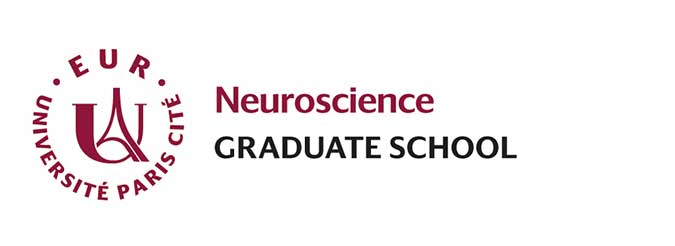
Presentation
Along with outstanding research teams, the Graduate School of Neuroscience promotes: interdisciplinarity, covers basic research, engineering, preclinical and clinical research in the field of neuroscience.
It benefits from strong international networks and from SMARTS-UP grants to welcome international students and supports Master’s internships abroad . Our three Master’s programmes are complementary. Along the year, different events are organised to promote research in neuroscience, student’s life and networking between different masters, alumni and professionals to facilitate their employment after a Master and/or PhD.
If you would like to get closer to the students of our Graduate School, you can contact our Neuroscience Master and Doctoral students Association (NMDA) .
[email protected]
Three international Master’s programmes :
- CogMaster ( cognitive neuroscience )
- BioMedical Engineering – Bioengineering and Innovation in Neuroscience (BME Paris – BIN)
- Neuroscience ( from cellular, molecular to integrative Neuroscience )
Below the list of the Graduate School of Neuroscience’s main laboratories and doctoral schools.
Laboratories
Inserm units:.
- T3S – environmental Toxicity, Therapeutic Targets, cellular Signaling and Biomarker (UMR 1124)
- Institut Cochin (U567, UMR 8104)
- Institut Imagine (UMR 1163)
- INEM – Institut Necker Enfants Malades – Cell Biology Department (UMR 1151)
- IPNP – Institute of Psychiatry and Neuroscience of Paris (U1266)
- IRCM – Lab RadioPathology-LRP (UMR SGCSR U1274)
- LVTS – Laboratory for Vascular Translational Science (UMR 1148)
- Neurodiderot (UMR 1141)
- Therapeutic optimization in Neuropsychopharmacology (UMR 1144)
CNRS UNITS:
- BFA – Unit of Functional and Adaptive Biolog (UMR 8251)
- Centre Borelli (UMR 9010)
- Epigenetics and cell fate (UMR 7216)
- Human Genetics Lab and cognitive functions – Institut Pasteur (UMR 3751)
- INCC – Integrative Neuroscience and Cognition Center (UMR 8002)
- Institut Jacques Monod (UMR 7592)
- SPPIN – Saints-Pères Paris Institute for the Neurosciences (UMR 8003)
Doctoral schools
The Graduate School of Neuroscience is affiliated to three main PhD schools:
- MTCI – Médicament, Toxicologie, Chimie, Imageries (DS 563)
- BioSPC (DS 562)
- 3C – Cerveau, Cognition, Comportement (DS 158)
The Coordinators of the Graduate School of Neuroscience :
- Prof. Mehrnaz JAFARIAN-TEHRANI UFR Basic and Biomedical Sciences
- Doc. Isabelle CAILLÉ UFR Life Sciences
- Prof. Philip GORWOOD
Administrative project manager: Martin DEOTTO
Steering Committee:
- Prof. Sophie BERNARD
- Doc. Isabelle CAILLÉ
- Prof. Frédéric CHARBONNIER
- Prof. Pierre GRESSENS
- Prof. Mehrnaz JAFARIAN-TEHRANI
- Doc. Thierry GALLI
- Prof. Charbel MASSAAD
- Prof. Claire SERGENT
À lire aussi

Les lauréats de l’appel Émergence en Recherche 2024
Appel à projets IDEX , Lauréat , Recherche , Université Paris Cité
L’appel à projets Émergence en Recherche soutient le démarrage d’une nouvelle thématique de recherche et/ou la réalisation d’une étude pilote et vise à contribuer ainsi à la dynamique de recherche facultaire et inter-facultaire de l’université Paris Cité. Parmi les...

Shanghai 2024: Université Paris Cité moves up 9 places to 60th worldwide
Institution , Press
Continuing the progress made last year, Université Paris Cité is now ranked 60th out of the 1,000 institutions included in the Shanghai Academic Ranking of World Universities (AWRU) for 2024, and remains 4th in France.

Université Paris Cité représentée aux Jeux paralympiques de Paris 2024
Institutionnel
Université Paris Cité sera représentée aux Jeux Paralympiques de Paris 2024 par l'étudiant Charles Renard, athlète de haut niveau en athlétisme et binôme de l’athlète paralympique Timothée Adolphe, et Pauline Déroulède, alumni de l’université et championne de France...

Santés humaine, animale et environnementale : la résistance bactérienne aux antibiotiques ne connaît pas de frontières
Presse , Recherche Santé
Dans une toute récente étude, co-dirigée par le Pr Laurence Armand-Lefèvre, l’approche “One Health” apporte des informations essentielles pour la surveillance de la résistance d’E. coli aux antibiotiques.

Institute of Cognitive Neuroscience MPhil/PhD
London, Bloomsbury
The Institute of Cognitive Neuroscience (ICN) PhD students are based in a truly interdisciplinary institute. The ICN is situated within the School of Life and Medical Sciences with staff members belonging to different research divisions and departments. This diversity provides a unique learning and research environment which is also much valued by employers.
UK tuition fees (2024/25)
Overseas tuition fees (2024/25), programme starts, applications accepted.
Applications open
- Entry requirements
Normally a minimum of an upper second-class Bachelor's degree or a taught UK Master's degree in a relevant subject from a UK university, or an overseas qualification of an equivalent standard.
The English language level for this programme is: Level 2
UCL Pre-Master's and Pre-sessional English courses are for international students who are aiming to study for a postgraduate degree at UCL. The courses will develop your academic English and academic skills required to succeed at postgraduate level.
Further information can be found on our English language requirements page.
Equivalent qualifications
Country-specific information, including details of when UCL representatives are visiting your part of the world, can be obtained from the International Students website .
International applicants can find out the equivalent qualification for their country by selecting from the list below. Please note that the equivalency will correspond to the broad UK degree classification stated on this page (e.g. upper second-class). Where a specific overall percentage is required in the UK qualification, the international equivalency will be higher than that stated below. Please contact Graduate Admissions should you require further advice.
About this degree
Researchers at the ICN examine how the human brain accomplishes perception, memory, cognition, language, consciousness and action. A leading principle is the tight integration of behavioural methods with various cutting-edge approaches to record and manipulate ongoing brain activity. Our research has strong translational implications for the treatment of various neurological and psychiatric disorders, as well as education, across the lifespan.
Who this course is for
If you are fascinated by cognitive neuroscience and want to pursue a career in research, you may wish to consider doing a PhD after your undergraduate or postgraduate degree.
Before applying for a PhD, you need to decide on a topic. This might be something you have already developed an interest in one during your undergraduate or Master's degree. Alternatively, you may want to get some ideas by taking a look at the research conducted by our academic staff .
What this course will give you
The key benefit of studying cognitive neuroscience at UCL is the outstanding research environment to which students have access. This includes the many UCL academics who are world experts in their respective fields; the taught courses offered by these members of staff; a large number of visiting speakers and also numerous workshops, summer schools and locally organised conferences.
An additional reason to study cognitive neuroscience at the ICN is the high quality of fellow students that come from a range of different backgrounds. This creates a stimulating research environment.
The foundation of your career
Many graduating PhD students have gone on to postdoctoral positions in leading universities such as UCL, Cambridge and Oxford in the UK, and UCLA and the University of California, Berkeley in the USA. Others have gone on to work in industry and professional roles.
Employability
Completing a PhD demonstrates a high level of analytic, communication, and technical skills. These skills are valuable both within and outside academia.
PhD students at the ICN participate in peer-led forums with the opportunity to network with other students across UCL departments and present their work in a supportive environment. The ICN also hosts a weekly seminar series with prominent international speakers presenting cutting-edge research. PhD students are encouraged to attend the seminars and meet for informal discussion with the speakers.
Teaching and learning
PhD research involves a wide variety of teaching and learning methods, but ultimately your self-directed research activities will be key. You can expect to be supported in developing research skills by your supervisory team, as well as a Thesis Committee who will guide you through the PhD.
There are two key assessments during a PhD programme. The first is the MPhil-to-PhD upgrade which takes place mid-way through the programme. This involves presenting your initial research to a panel and discussing it with them. If the upgrade is successful, your status changes from being a MPhil to a PhD student. The second key assessment is the final PhD examination, which involves a viva examination where you discuss your research with relevant experts.
A PhD consists mostly of self-directed research, however you can expect to meet regularly with your supervisory team and participate in the equivalent of at least 10 days of training activities per year.
Research areas and structure
- Cognitive neurology
- Cognitive psychology
- Cognitive neuropsychiatry
Areas of human cognition studied include:
- Action and body
- Applied cognitive neuroscience
- Attentive and cognitive control
- Cognitive electrophysiology
- Clinical neurophysiology and memory
- Decision making
- Interoception
- Metacognition and executive functions
- Neuroscience and mental health
- Neurotherapeutics
- Social neuroscience
- Space and memory
- Speech communication
- Visual communication
Research environment
We are ranked first for research power in Psychology, Psychiatry and Neuroscience by the UK’s Research Excellence Framework (REF 2021), with more than two thirds of our research in these areas rated as world-leading (4*).
The MPhil/PhD programme commences in late September/early October. As a research student in the Division you will find yourself using 'state-of-the-art' techniques in a very active research environment. You will be part of a lively and friendly group of graduates. There is a wide range of technical assistance available when needed, as well as library and computing facilities.
UCL regulations require that initial registration as a research student is for an MPhil degree. If satisfactory progress is demonstrated a student's registration is 'upgraded' to PhD. As part of the programme students take a range of courses designed to equip them for research. In particular, they take a selection of research methods courses appropriate for different backgrounds, designed to help them develop key research skills, such as the ability to evaluate critically the literature in an area or to perform advanced statistical analyses.
The full-time PhD typically lasts for 3 years, including the time registered as an MPhil student, and if the thesis is not submitted within this time then students may register as Completing Research Students (CRS) for 1 additional year.
The part-time PhD typically lasts for 5 years, including the time registered as an MPhil student, and if the thesis is not submitted within this time then students may register as Completing Research Students (CRS) for 1 additional year.
Accessibility
Details of the accessibility of UCL buildings can be obtained from AccessAble accessable.co.uk . Further information can also be obtained from the UCL Student Support and Wellbeing team .
Fees and funding
Fees for this course.
| Fee description | Full-time | Part-time |
|---|---|---|
| Tuition fees (2024/25) | £6,035 | £3,015 |
| Tuition fees (2024/25) | £34,400 | £17,200 |
The tuition fees shown are for the year indicated above. Fees for subsequent years may increase or otherwise vary. Where the programme is offered on a flexible/modular basis, fees are charged pro-rata to the appropriate full-time Master's fee taken in an academic session. Further information on fee status, fee increases and the fee schedule can be viewed on the UCL Students website: ucl.ac.uk/students/fees .
Additional costs
There are no additional costs for this programme.
For more information on additional costs for prospective students please go to our estimated cost of essential expenditure at Accommodation and living costs .
Funding your studies
Funding may be available from UK Research Councils, teaching assistant studentships (demonstratorships), and UCL graduate research scholarships.
For a comprehensive list of the funding opportunities available at UCL, including funding relevant to your nationality, please visit the Scholarships and Funding website .
Research degrees may start at any time of the year, but typically start in September. The deadline to be considered for fellowship funding will be early January for all students. Further applications can be considered after this point, but will not be eligible to be proposed for the funding opportunities we can offer such as UCL graduate research scholarships. Students who wish to be considered for funding are advised to contact a potential supervisor well in advance of this deadline. You should identify and contact potential supervisors before making your application. Please see the research groups and email the group leader whose areas of research most closely match your own interests. For more information see our PhD Programmes page.
Please note that you may submit applications for a maximum of two graduate programmes (or one application for the Law LLM) in any application cycle.
Choose your programme
Please read the Application Guidance before proceeding with your application.
Year of entry: 2024-2025
Got questions get in touch.

Division of Psychology and Language Sciences
UCL is regulated by the Office for Students .
Prospective Students Graduate
- Graduate degrees
- Taught degrees
- Taught Degrees
- Applying for Graduate Taught Study at UCL
- Research degrees
- Research Degrees
- Funded Research Opportunities
- Doctoral School
- Funded Doctoral Training Programmes
- Applying for Graduate Research Study at UCL
- Teacher training
- Teacher Training
- Early Years PGCE programmes
- Primary PGCE programmes
- Secondary PGCE programmes
- Further Education PGCE programme
- How to apply
- The IOE approach
- Teacher training in the heart of London
- Why choose UCL?
- Entrepreneurship
- Inspiring facilities and resources
- Careers and employability
- Your global alumni community
- Your wellbeing
- Postgraduate Students' Association
- Your life in London
- Accommodation
- Funding your Master's
German Graduate Schools of Neuroscience
Welcome to our website. We represent a selection of German neuroscientific graduate schools and provide information about 29 international programs at a glance. The most relevant content of each program is available in this brochure
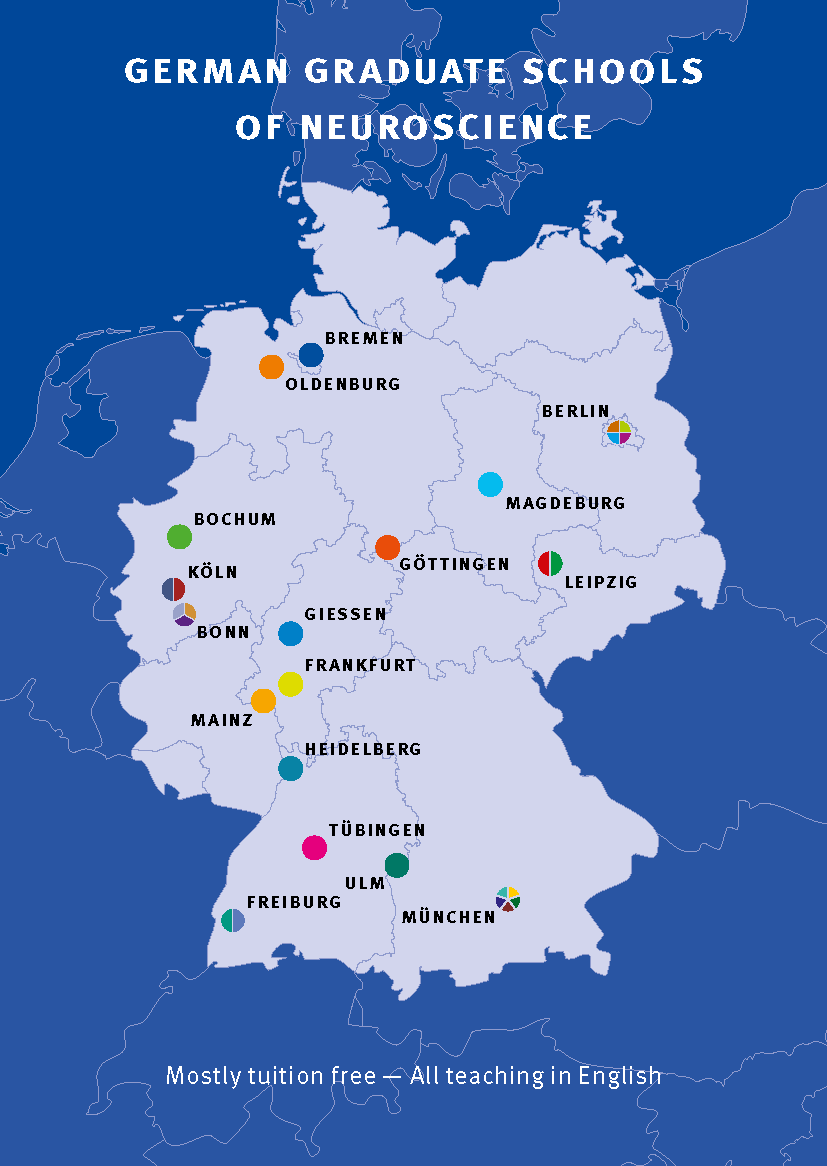
Legal notice
Ruhr-Universität-Bochum International Graduate School of Neuroscience Contact: [email protected]
Universität Bonn MSc Neurosciences Contact: [email protected]
Universität Bonn Bonn International Graduate School (BIGS) of Neuroscience Contact: [email protected]
Max Planck Institute for Neurobiology of Behavior International Max Planck Research School (IMPRS) for Brain and Behavior Contact: [email protected]
Universität Bremen MSc Graduate Program Master of Neurosciences Contact: [email protected]
Max Planck-Institute for Brain Research International Max Planck Research School (IMPRS) for Neural Circuits Contact: [email protected]
Universität Freiburg Interdisciplinary Master of Science Program in Neuroscience Contact: [email protected]
Universität Freiburg PhD Program in Computational Neuroscience and Neurotechnology Contact: [email protected]
New Member: HAMBURG
Universität Hamburg Hamburg Brain School Contact: [email protected]
Universität Heidelberg International Graduate Program of the Interdisciplinary Center for Neurosciences Heidelberg Contact: [email protected]
Universität Köln MSc Experimental and Clinical Neuroscience Contact: [email protected]
Universität Köln MSc Neuroscience Contact: [email protected]
Universität Mainz Mainz Research School of Translational Biomedicine (TransMed) , Section Neurosciences Contact: [email protected]
Universität Oldenburg Master Programm in Neuroscience Contact: [email protected]
Universität Tübingen Graduate Training Center of Neuroscience Contact: [email protected]
Humboldt-Universität zu Berlin Berlin School of Mind and Brain Contact: [email protected]
Charité - Universitätsmedizin Berlin International Graduate Program Medical Neurosciences Contact: [email protected]
Bernstein Center for Computational Neuroscience Berlin International Graduate Program Computational Neurosciences Contact: [email protected]
Freie Universität Berlin Master Cognitive Neuroscience Berlin (MCNB) Contact: [email protected]
Justus Liebig University Giessen MSc Mind, Brain and Behavior Contact: [email protected]
Georg-August-Universität Göttingen European Neuroscience Institute MSc/PhD/MD-PHD Neurosciences Program Contact: [email protected]
Max Planck Institute for Human Cognitive and Brain Sciences International Max Planck Research School on Neuroscience of Communication (IMPRS NEUROCOM) Contact: [email protected]
Max Planck Institute for Human Cognitive and Brain Sciences Max Planck School of Cognition Contact: [email protected]
Otto-von-Guericke Universität Magdeburg Integrative Neuroscience Contact: [email protected]
Ludwig-Maximilians-Universität München MSc/PhD Neurosciences Program Contact: [email protected]
Technische Universität München (TUM) Master Program Biomedical Neuroscience Contact: [email protected]
Universität Ulm MSc Program Molecular and Translational Neuroscience (MTN) Contact: [email protected]
We have 10 Neuroscience (europe) PhD Projects, Programmes & Scholarships
Biological Sciences
All locations
Institution
All Institutions
All PhD Types
All Funding
Neuroscience (europe) PhD Projects, Programmes & Scholarships
Fully-funded phd positions in the life sciences/molecular biosciences, funded phd programme (students worldwide).
Some or all of the PhD opportunities in this programme have funding attached. Applications for this programme are welcome from suitably qualified candidates worldwide. Funding may only be available to a limited set of nationalities and you should read the full programme details for further information.
International PhD Programme
International PhD programs are often designed for international students. Your PhD will usually be delivered in English, though some opportunities to gain and use additional language skills might also be available. Students may propose their own PhD topics or apply for advertised projects.
Austria PhD Programme
An Austrian PhD usually takes 3-4 years. Most students complete their projects within broader PhD programmes incorporating a curriculum of courses and training worth a certain number of ECTS credits as well as research towards an original thesis. This will be presented for a public examination by two academic experts. Most programmes are delivered in German, but some universities offer English-language teaching.
FMI International PhD Program Autumn Call 2024
Switzerland phd programme.
A Swiss PhD usually takes 3-5 years. Traditional doctorates focus on independent research; more structured programmes include additional training and sometimes involve two or more universities working in partnership. Both types of PhD require you to produce an original thesis and present it for a public examination. Some programmes are delivered in English, with others offered in German, French or Italian.
Funded MRC PPU PhD Programme 2025, University of Dundee, Scotland
4 year phd programme.
4 Year PhD Programmes are extended PhD opportunities that involve more training and preparation. You will usually complete taught courses in your first year (sometimes equivalent to a Masters in your subject) before choosing and proposing your research project. You will then research and submit your thesis in the normal way.
PhD Candidate: Computational Cognitive Neuroscience – Decision Confidence
Phd research project.
PhD Research Projects are advertised opportunities to examine a pre-defined topic or answer a stated research question. Some projects may also provide scope for you to propose your own ideas and approaches.
Funded PhD Project (Students Worldwide)
This project has funding attached, subject to eligibility criteria. Applications for the project are welcome from all suitably qualified candidates, but its funding may be restricted to a limited set of nationalities. You should check the project and department details for more information.
Exploration of the disease sequalae of Gestational Diabetes (Part of the ELEMI Womens Health Program)
Self-funded phd students only.
This project does not have funding attached. You will need to have your own means of paying fees and living costs and / or seek separate funding from student finance, charities or trusts.
MScR - Early-life stress, susceptibility to mental health disorders and glia: central immune response in a rat model of pre-term birth
International ph.d. programs in the life sciences, doctoral (phd) positions at international max planck research school - biological intelligence, germany phd programme.
A German PhD usually takes 3-4 years. Traditional programmes focus on independent research, but more structured PhDs involve additional training units (worth 180-240 ECTS credits) as well as placement opportunities. Both options require you to produce a thesis and present it for examination. Many programmes are delivered in English.
Max Planck Research Programme
Max Planck Research Programmes are structured PhD opportunities set up by the Max Planck Society, an independent non-profit German research organisation. Max Planck Institutes and universities collaborate to offer interdisciplinary and international PhD opportunities providing high standards of training and support as well as generous funding.
Fully Funded PhD Positions at the IMT School for Advanced Studies Lucca
Italy phd programme.
An Italian PhD usually takes 3-4 years and consists of some taught units as well as research towards your thesis. This will be examined at a public defence, rather than a private viva voce. Some programmes are taught in English.
OPEN CALL FOR 12 PHD POSITIONS in MSCA Doctoral Network “MiCCrobioTAckle”
Funded phd programme (european/uk students only).
Some or all of the PhD opportunities in this programme have funding attached. It is available to citizens of a number of European countries (including the UK). In most cases this will include all EU nationals. However full funding may not be available to all applicants and you should read the full programme details for further information.
FindAPhD. Copyright 2005-2024 All rights reserved.
Unknown ( change )
Have you got time to answer some quick questions about PhD study?
Select your nearest city
You haven’t completed your profile yet. To get the most out of FindAPhD, finish your profile and receive these benefits:
- Monthly chance to win one of ten £10 Amazon vouchers ; winners will be notified every month.*
- The latest PhD projects delivered straight to your inbox
- Access to our £6,000 scholarship competition
- Weekly newsletter with funding opportunities, research proposal tips and much more
- Early access to our physical and virtual postgraduate study fairs
Or begin browsing FindAPhD.com
or begin browsing FindAPhD.com
*Offer only available for the duration of your active subscription, and subject to change. You MUST claim your prize within 72 hours, if not we will redraw.

Do you want hassle-free information and advice?
Create your FindAPhD account and sign up to our newsletter:
- Find out about funding opportunities and application tips
- Receive weekly advice, student stories and the latest PhD news
- Hear about our upcoming study fairs
- Save your favourite projects, track enquiries and get personalised subject updates

Create your account
Looking to list your PhD opportunities? Log in here .
Filtering Results
Browser does not support script.
Go to…
- What is neuroscience?
- Departments
- Undergraduate
- Postgraduate
- Research Themes
Study a Neuroscience PhD programme at King's:
- Research project topics span from molecules to mind, including clinical and translational aspects to make a meaningful differences in people's health
- Be part of an international and diverse student body, studying at one of three central London campuses, with an active student Neuroscience Society ( Neurosoc )
- Extensive programmes of seminars by our faculty and international neuroscience research stars
- Opportunities to present research findings at national and international neuroscience conferences and publish in leading journals
- Teaching opportunities for PhD students via King's Talent Bank
What you will study
King's PhD students can complete three-year projects focusing on a specific research project or a four-year studentship through a MRes/PhD programmes. These studentships follow a '1+3' model, in which students undertake lab rotations and transferable skills training in the first year, then perform their extended lab project over years 2-4.
PhD students gain:
- Independent project and team-working skills
- Acuity in analytical skills and critique of the literature
- Ability to communicate findings to a wide range of audiences
Read our guide on how to apply for a PhD .
Explore King's Neuroscience
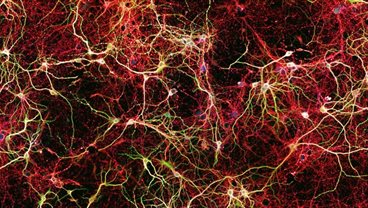
Our research
Leading the world in understanding brain function and finding new treatments for patients
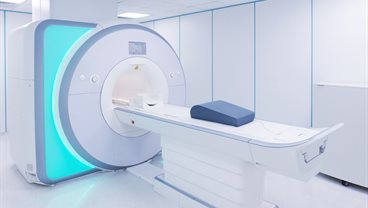
Facilities & Resources
World-class neuroscience facilities & resources, including MRI, neuroimaging equipment, and King's…
Find out more about Neuroscience PhDs at King’s

MRC Doctoral Training Partnership in Biomedical Sciences
Neuroscience Doctoral Training Partnerships at King's College London.
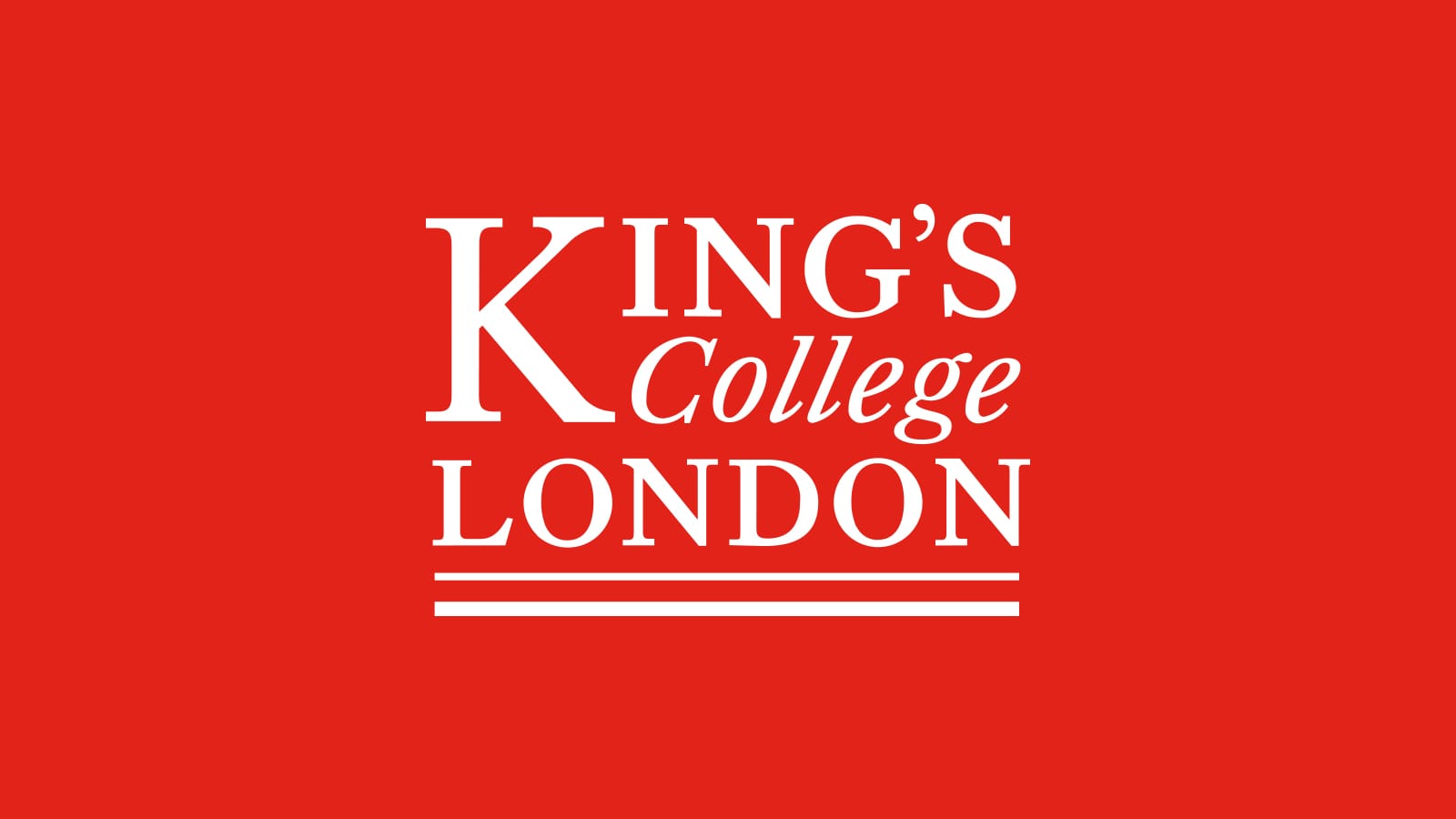
Wellcome Trust PhD Training Programme in Neuro-Immune Interactions in Health and Disease
The Centre for Stem Cells & Regenerative Medicine (CSCRM) in the Faculty of Life Sciences & Medicine…
News and events

30 August 2024
Dulled emotional reactions in individuals with anhedonia linked with prolonged activity of the brain's attentional networks.
Anhedonia-related emotional blunting is linked with abnormally sustained activity in brain areas…
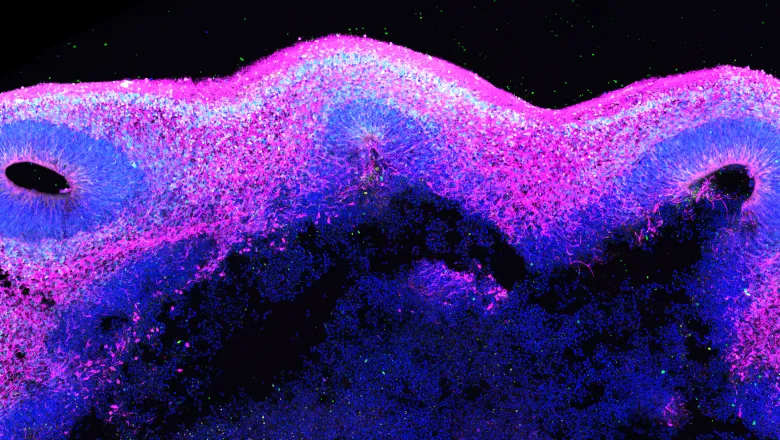
28 August 2024
King's researchers join £28.5 million Human Functional Genomics Initiative
Professor Oscar Marín and Professor Deepak Srivastava co-lead the research cluster Functional…

30 July 2024
Research into axonal dysfunction in neurodegeneration awarded £3.9 million by Medical Research Council and the Motor Neurone Disease Association
Researchers will systematically investigate and design therapeutic strategies to address diseases at…

25 July 2024
Professor Benedikt Berninger delivers inaugural lecture "The Art of Forging Neurons"
On 15 July 2024, Professor Berninger delivered his inaugural lecture as a Professor of Developmental…

Subscribe to our newsletter to receive scholarships information!
- Undergraduate Courses
- Master’s Courses
- MBA Courses
- View Courses by All Degrees
- Business Courses
- Chemistry Courses
- Computer Science Courses
- Data Science Courses
- Design Courses
- Engineering Courses
- Environmental Sustainability Courses
- Marketing Courses
- Law Courses
- Psychology Courses
- View Courses for All Subjects
- Canada Courses
- Europe Courses
- Germany Courses
- Japan Courses
- United Kingdom Courses
- United States Courses
- View Courses for All Countries
- Bachelor’s Scholarships
- Master’s Scholarships
- Ph.D. Scholarships
- View Scholarships for All Degrees
- Australia Scholarships
- Canada Scholarships
- Ireland Scholarships
- Japan Scholarships
- South Korea Scholarships
- United States Scholarships
- United Kingdom Scholarships
- View Scholarships for All Countries
- Fully Funded Scholarships
- Full Tuition Scholarships
- Partially Funded Scholarships
- View Scholarships for All Types
- Currently Open Scholarships
- Government Scholarships
- External Scholarships
- Currently Open Scholarships in Australia
- Currently Open Scholarships in Canada
- Currently Open Scholarships in South Korea
- Currently Open Scholarships in the United Kingdom
- Currently Open Scholarships in the United States
- View All Currently Open Scholarships
- Lester B. Pearson International Scholarships
- Academic Elite Scholarships
- Reach Oxford Scholarship
- View All Fully Funded Bachelor’s Scholarships
- Graduate Students Research Assistantship
- KAIST Scholarship (Graduate)
- Merit-Based Scholarships
- View All Fully Funded Master’s Scholarships
- Graduate Research Scholarships
- Four Year Doctoral Fellowship (4YF)
- Assistantships
- View All Fully Funded Ph.D. Scholarships
- Harvard University Scholarships
- Yale University Scholarships
- Massachusetts Institute of Technology Scholarships
- University of Toronto Scholarships
- Princeton University Scholarships
- Stanford University Scholarships
- View All University Scholarships
- Fulbright Scholarships
- Australian Government Scholarships
- DAAD Scholarships
- Chevening Scholarships
- Korean Government Scholarships
- Japanese Government Scholarships
- Vanier Scholarships
- View All Government Scholarships
- Harvard University
- Yale University
- Grinnell College
- Colby College
- Indian Nationality
- Pakistani Nationality
- African Nationality
- Nepali Nationality
- Bachelors Scholarships
- USA Scholarships
- UK Scholarships
- Full Funding
- Full Tuition
- Partial Funding
- Filipino Nationality
- Ghanaian Nationality
- Study in Canada
- Study in Norway
- Study in Switzerland
- Study in Hungary
- Study in Italy
- Study in Singapore
- Cheap Universities in USA
- Cheapest Universities in Canada
- Tuition Free Universities in Europe
- Tuition-Free Universities in Germany
- Cheap Universities in Australia
- Cheap Universities in Korea
- Cheap Universities in China
- Cheap Universities in Japan
- United States
- New Zealand
- United Kingdom
- South Korea
- United Arab Emirates
- Czech Republic
- Netherlands
- Canada Student Visa
- United States Student Visa
- Australia Student Visa
- New Zealand Student Visa
- Germany Student Visa
- Korea Student Visa
- China Student Visa
- USA Work Visa
- Canada Work Visa
- Germany Work Visa
- Netherlands Work Visa
- Norway Work Visa
- Ireland Work Visa
- Finland Work Visa
- Denmark Work Visa
- French – DELF/DALF
- German – DSH
- German – TestDaF
- Korean – TOPIK
- Chinese – HSK
- Japanese – JLPT
- Spanish – DELE
- Italian – CELI/CILS
- Personal College Essay
- Why This College Essay
- Scholarship Resume
- Personal Statement
- Recommendation Letter
- Creative Portfolio
- Scholarship Admissions FAQs
- Universities with No Application Fees
- Talk to a Counselor
- Partner with Us
- Promote Your Courses
- Newsletter Signup
- Privacy Policy
17 Best Neuroscience Schools in Europe
Neuroscience is one of the most advanced and fastest-growing branches of biology today. It studies human thoughts, perceptions, emotions, and behavior. It looks at how the nervous system functions and finds ways to treat neurological and psychiatric disorders. There are still many unanswered questions about the human brain, so working in this field will put you at the forefront of scientific discovery.
Most graduates of Neuroscience pursue a career in the medical field as a physician. However, a degree in neuroscience also gives you opportunities to work in research labs, higher education institutions, the pharmaceutical industry, and even the government.
It truly is a very challenging yet rewarding field. If you’re considering taking a degree in Neuroscience, choose a school that offers rigorous academic instruction, strong faculty support, and good internship opportunities. Here are the some of the best neuroscience schools in Europe.
Top Neuroscience Schools in Europe
1. king’s college london.
- Study Program | Tuition Fees | Scholarships
- Location: England | Degrees Offered: Bachelor’s, Master’s, and Ph.D.
King’s College London was founded in 1829 but only started offering neuroscience and psychology courses in 1948. It quickly became the global leader in neuroscience research and education and no school has surpassed them to this day. It is now home to the largest neuroscience research center, and industry-leading clinicians and scientists form part of its faculty.
The school offers a 3-year BSc in Neuroscience and Psychology. For those who want to have real-life work experience, you have the option to pursue a year of professional placement. King’s College London is among the best neuroscience schools in Europe as it partners with South London & Maudsley Hospital and more than 100 research teams to ensure that students can find a placement that is relevant to their interests.
For postgraduates, King’s College offers a multitude of Master’s degrees that covers a diverse list of specializations. Students may choose to concentrate on Addictions, Affective Disorders, Applied Neurosciences, and Psychiatric Research to name a few. The study duration varies for every concentration and some may require professional placement.
2. University of Bordeaux
- Study Program
- Location: France | Degrees Offered: Master’s and Ph.D.
When it comes to having the best Neuroscience facilities on-campus, no school can beat the University of Bordeaux in France. It has the biggest campus in Europe and houses the Neurocampus, a 15,000 square meter research center fully devoted to studying the nervous system and its diseases. More than 650 neuroscientists and researchers from all over the world visit every year to use the latest technology in the industry.
While the University of Bordeaux does not offer any Bachelor’s degree in Neuroscience, it does offer a 2-year Master’s degree. Lessons are conducted in small classes so you can enjoy a more personalized approach from their professors. Facilities at the Neurocampus are available for student use. Participating in international training is optional, but a Master’s Thesis is required to complete the degree.
3. University College London
- Study Program | Tuition Fees | Scholarships
The University College London (UCL) in the UK takes pride in being a multidisciplinary university that places high importance on research. No matter what program you are enrolled in, students are directly involved in research throughout their stay in school.
A leading neuroscience institution in Europe, UCL offers BSc Neuroscience and MSc Neuroscience with study durations that last for three years and one year, respectively. The research-based curricula for both degrees ensure that students are well-equipped with broad and deep knowledge that they could use as they transition to professional practice in medicine, education, or public policy.
Courses are taught by the best faculty, comprised of current clinicians and researchers in different aspects of the field. A few of them are Nobel Laureates in Physiology and Medicine.
4. University of Oxford
- Study Program | Tuition Fees | Scholarships
- Location: England | Degrees Offered: Bachelor’s and Master’s
The University of Oxford (UO) is one of the oldest schools in the UK that is currently in operation, with evidence of teaching dating back to 1096. It is now one of the most prestigious universities in the world. Its faculty started to conduct research on Neuroscience in the seventeenth century, and they are keen on preserving the school’s status as an industry leader until today.
UO offers a 3-year BA in Neuroscience for undergraduates. It involves rigorous coursework, with students of this top neuroscience school attending six to ten lectures per week and one tutorial session. Tutorial sessions usually involve a small group of 2-4 students discussing the week’s lessons with a member of the faculty or doctorate students.
For those seeking Master’s degrees, you may choose to specialize in Clinical Neurosciences, Psychology, Pharmacology, Physiology, Anatomy & Genetics, or Psychiatry. Study duration ranges from two to four years, depending on your field of specialization. A Master’s Thesis is required to be awarded the degree.
5. University of Sussex
- StudyProgram | Tuition Fees | Scholarships
Another one of the best neuroscience schools in Europe is the University of Sussex (US), a public university in the UK. It began to offer Neuroscience programs in 1965. It is a research-intensive university, which is why more than 30% of its students are pursuing postgraduate degrees.
US offers BSc Medical Neuroscience, BSc Neuroscience, and BSc Psychology with Neuroscience. These run for three years, with an option to add a year for professional placement or study abroad. The faculty heavily focuses on medical courses since most students here aim to pursue medical careers after graduating.
Postgraduates can enroll in MSc Neuroscience, which runs for a year. Courses taught in Master’s classes dive deeper into the field and discuss advanced research methods, complex math, machine learning, and molecular pharmacology. Students also get the opportunity to conduct research with postgraduates in related fields, such as engineering and chemistry.
6. Trinity College Dublin
- Study Program | Tuition Fees | Scholarships
- Location: Ireland | Degrees Offered: Bachelor’s, Master’s, and Ph.D.
Established in 1592, Trinity College Dublin is Ireland’s oldest surviving university. It was modeled after Oxford University and Cambridge University, which is why it is considered one of Europe’s most elite schools. It is a very selective school that admits students solely based on their academic merits.
Trinity College does not offer a full Bachelor’s degree in Neuroscience. However, undergraduates may enroll in BSc Biological and Biomedical Sciences and choose Neuroscience as their specialization during their second year.
Postgraduates, however, may enroll in Trinity College’s MSc Neuroscience program. It runs for one year and provides fast-paced multidisciplinary training in Neuroscience. Students undergo a mix of lectures, workshops, laboratory practical sessions, and seminars. Some topics of study include Neuropharmacology, Neuroimmunology, and Neuroimaging.
7. University of Copenhagen
- Location: Denmark | Degrees Offered: Master’s and Ph.D.
Another one of the best neuroscience schools in Europe is the University of Copenhagen (UC) . Fun fact, it is the oldest surviving university in Denmark. Today, it is the largest educational institution in the country, with over 8,000 students enrolled every year. Through the years, UC has developed research-based curricula and became a member of prestigious research alliances, including the International Alliance of Research Universities.
UC conducts its classes for Bachelor’s degrees in Danish. While the school does not offer any undergraduate degree in Neuroscience, students may enroll in related fields, such as Biotechnology or Molecular Biomedicine.
Classes for Master’s degrees are conducted in both English and Danish. The 2-year MSc in Neuroscience at UC involves attending intensive lectures, doing case studies, and visiting top-notch laboratories in Denmark. Postgraduate students are required to complete a Master’s Thesis by Year Two.
8. University of Cambridge
- Study Program | Tuition Fees | Scholarships
- Location: England | Degrees Offered: Master’s
Founded in 1209, the University of Cambridge is one of the world’s oldest surviving universities. With its traditional scholarly values and academic excellence, this institution often ranks among the top universities across the globe. This prestigious school has produced 121 Nobel Prize laureates, 47 Heads of State, and 210 Olympic medallists over the years along with thousands of graduates who excel in their respective fields.
With its rigorous curriculum, modern facilities, and qualified professors, the University of Cambridge is renowned as one of the best European schools for Neuroscience. Various seminars are conducted on campus to help students gain more insight into the subject.
9. University of Zurich
- Location: Sweden | Degrees Offered: Master’s and Ph.D.
The University of Zurich (UZH) is one of the leading public research universities in Europe. It is the largest university in Switzerland offering the widest range of degree programs, allowing more than 28,000 students to pursue their fields of interest.
UZH started in 1833 with colleges in theology, law, medicine, and philosophy. While these faculties remain excellent to this day, UZH has garnered an even bigger reputation in the fields of economics, medicine, biology, genetics, immunology, and neuroscience.
Just recently, The Faculty of Science of UZH has started a Master’s Degree in Interdisciplinary Brain Sciences together with the Department of Health Sciences and Technology (D-HEST) of ETH Zurich. This joint program deals with neuroscience education with an emphasis on three areas: Brain Biology, Systems, Computation, and Neural Technology, and Translational, Clinical, and Cognitive Neuroscience.
10. VU University of Amsterdam
- Location: Netherlands | Degrees Offered: Master’s
Founded in 1880, Vrije Universiteit Amsterdam (VU Amsterdam) is an internationally recognized institute. It is one of two publicly funded research universities in Amsterdam. With its great profile on academics, the school has become a top choice for many students.
VU Amsterdam offers a two-year Master’s in Neurosciences. It is taught in English and has a complex curriculum that features interdisciplinary learning. The university does not offer undergraduate studies in neuroscience, but it offers a minor in Biomolecular Science and Neuroscience for students in the life sciences department. This allows students to gain insight into the latest knowledge of experimental cell biology, which is beneficial for those pursuing graduate studies in neuroscience.
11. Karolinska Institute
Karolinska Institute (KI) is Sweden’s single largest center of medical academic research that offers the country’s widest range of medical programs and courses, including neuroscience. Consistently ranking among the world’s best medical schools, KI always comes up at the top of lists of best schools for neuroscience in Europe.
KI has very selective admissions and only has a 3 percent acceptance rate. The university has undergraduate and Doctorate studies for neuroscience programs with competitive research fields that study cognitive neuroscience, the genetic and molecular basis of nervous system disorders, and neural cells.
12. Ludwig Maximillan University of Munich
- Location: Germany | Degrees Offered: Bachelor’s, Master’s, and Ph.D.
Ludwig Maximilian University of Munich (LMU) is a public research university in Munich, Germany. It is the country’s sixth-oldest continuously operating university. With outstanding research with a diverse range of courses, LMU has consistently received excellent ratings in international university rankings.
The Munich Center for Neurosciences (MCN) of LMU was founded in 2005 and aims to connect various groups in the fields of neurobiology, cognition, and the brain and mind. The center has built a unique teaching philosophy that draws great students at all stages of training, fosters the formation of new collaborative research programs, and offers a platform for interdisciplinary connections.
13. Heidelberg University
- Master’s Program | Ph.D. Program | Tuition Fees | Scholarships
- Location: Germany | Degrees Offered: Master’s and Ph.D.
Heidelberg University , the oldest university in Germany and one of the oldest still operating universities in the world, was established in 1386 at the request of Pope Urban VI. Heidelberg University describes itself as a globally connected academic institution committed to research-oriented teaching. The institution values personalized experiences and believes it is the way to assist its students in realizing their goals and dreams.
Heidelberg offers neuroscience programs for students at the graduate level. These provide input on various subjects including Medical Cell Biology, Neurobiology, Neurophysiology, Neurosurgery, Pharmacology, and more.
14. University of Tubingen
- Location: Wales | Degrees Offered: Master’s
One of eleven German Excellence Universities, the University of Tubingen is a reputed public research university located in the city of Tubingen, Germany. The school is highly regarded as a center for the studies of medicine, plant biology, law, archeology, ancient cultures, philosophy, theology, and religious studies. It is also popular in the field of artificial intelligence.
Under the Faculty of Science, the University of Tubingen has established an Institute for Neurobiology. This dedication to the field is one of the reasons why the university is known as one of the best places to study neuroscience in Europe. A Master’s program is available at the university, which encourages students to conduct high-level research while learning from top neuroscientists in the world today.
15. University of Bristol
- Location: England | Degrees Offered: Bachelor’s
With an international reputation for high-quality education and research, the University of Bristol is one of the best universities in the world. It is consistently recognized as one of the top ten in the UK. This Russell Group research institution has made innovations in nanotechnology and cot death prevention and has continued to lead international research in intelligent systems and more.
The University of Bristol offers an excellent undergraduate program for students who wish to study neuroscience. Students will have access to well-equipped modern laboratories and state-of-the-art facilities. There is also a high-fidelity Human Patient Simulator and a dynamic lab manual called eBioLabs, allowing students to put what they have learned in the classroom into practice.
16. University of Edinburgh
- Location: Scotland | Degrees Offered: Ph.D.
Founded in 1583, the University of Edinburgh is one of Scotland’s four oldest universities. It is globally recognized for its research, innovations, and world-class teaching. The university has attracted approximately 35,000 students, the majority of which study in the largest of its colleges, the College of Arts, Humanities, and Social Science.
The University of Edinburgh is also reputed to be a world-class leader in the field of Medicine and Veterinary Medicine. Edinburgh’s neuroscience program has placed 2nd in the UK for quality in its academics and research.
17. Cardiff University
- Bachelor’s Program | Master’s Program | Tuition Fees | Scholarships
- Location: Wales | Degrees Offered: Bachelor’s and Master’s
Located in the beautiful and thriving capital city of Wales, Cardiff University is among the top universities in Europe offering neuroscience programs. This world-leading research institution has maintained its position as an excellent school where students are guaranteed high-quality academics and innovative research.
Cardiff University offers neuroscience programs for both undergraduate and graduate studies. With modern laboratories and equipment, the school grants its learners a chance to study the brain in a dynamic, multi-disciplinary environment. The faculty are from a diverse range of academic backgrounds and neuroimaging expertise, ensuring the quality of teaching at the university.
FAQs about Studying Neuroscience
What is the difference between neurology and neuroscience.
Neurologists are physicians who have a degree in medicine and have pursued neurology as the specialty of their choice. Neurologists go through intensive training for more than ten years before they can get their licenses. Neurologists can be physicians or surgeons, and pursuing the latter may take a few more years. Neuroscientists, on the other hand, are not certified physicians. Some of them are doctors in the sense that they have a Ph.D. in the field, but they have not gone to medical school to get their degrees. Unlike neurologists who examine human patients, neurologists, for the most part, conduct their research on animals like rats, mice, and monkeys. Unfortunately, there are no specific courses for either discipline on our website at the moment, but we implore you to check back soon as we keep updating our database. In the meantime, please check our website for related programs.
We hope that you found this article on the best neuroscience schools in Europe informative and helpful. Make sure to also check out the Available Programs in Europe!
About the Author: Hyun Lee
Share this article via
Leave a comment cancel reply.
Save my name, email, and website in this browser for the next time I comment.
Related posts:

Sign up to our Newsletter
Get updates on fully-funded scholarships, currently open scholarships, and more!
You have successfully joined our subscriber list.
Scholarships
© 2024 Global Scholarships Corporation. All Rights Reserved
Sign in to Global Scholarships
Secondary Menu
Fully funded phd and masters opportunities in paris.
The Department of Cognitive Studies (DEC) at Ecole Normale Supérieure is inviting applications for its graduate programs in cognitive science. Our training offer includes: a fully-funded 5-year PhD program and a fully-funded extended 3-year Masters program (which can be followed by a 3-year doctoral grant at ENS or elsewhere in France, conditioned on a mid-term evaluation). Application deadline: early December 2020 - please find more details below.
PhD Program:
We offer a fully-funded 5-year PhD Program in most subfields of cognitive science (including Linguistics, Philosophy, Cognitive Social Science, Psychology, Neuroscience, Modeling). Unlike most PhD programs in Europe, and at the image of PhD programs in North-America, admission in this program does not require an MA-level degree. The PhD program combines a taught component drawing mainly from our Master in Cognitive Science with multiple lab rotations.
Deadline for applications: December 17, 2020 23:59 (Central European Time)
More information on the website: https://graduateschool.dec.ens.fr/
The PhD program is funded by French government grant Frontiers in Cognition.
Fully-funded extended Masters fellowships for international students:
We offer paid three-year fellowships to international students interested in joining our Master in Cognitive Science, which offers interdisciplinary training in Linguistics, Philosophy, Cognitive Social Science, Psychology, Neuroscience, Modeling and Cognitive engineering ( https://cogmaster.ens.psl.eu/en ). Students can then pursue a fully-funded PhD at ENS or elsewhere in France, conditioned on a mid-term evaluation.
Deadline for applications: Science track: December 9, 2020 23:59 (Central European Time) Humanities track: December 29, 2020 23:59 (Central European Time)
More information on the website: https://cognition.ens.fr/fr/admissions-bourses/etudiants-etrangers-646
- Post-graduation
- Diversity, Equity & Inclusion
- Climate Handbook
- P&N Team Resources
- Degree Requirements
- Frequently Asked Questions
- Practicum and Ongoing Research Projects in Psychology
- Research Participation Requirements for Psychology Courses
- Summer Vertical Integration Program (VIP)
- Graduation with Distinction (GwD)
- Psychology Courses
- Graduate School Advice
- Career Options
- Forms & Resources
- Global Education
- Co-requisite Requirement
- Neuroscience Courses
- Neuroscience: Undergraduate Research Opportunities
- Neuroscience Research Practicum & Laboratories
- Summer Neuroscience Program
- Research Independent Study in Neuroscience
- Graduation with Distinction
- Neuroscience Teaching Lab
- Student Spotlights
- Other Job Boards
- Student Organizations
- Trinity Ambassadors
- Clinical Psychology
- Cognition & the Brain
- Developmental Psychology
- Social Psychology
- Systems and Integrative Neuroscience
- Admitting Faculty
- Application FAQ
- Financial Support
- Teaching Opportunities
- Departmental Graduate Requirements
- MAP/Dissertation Committee Guidelines
- MAP/Oral Exam Guidelines/Timeline
- Dissertation and Final Examination Guidelines
- Awards for Current Students
- Teaching Resources
- Instructor/TA Guidelines
- Faculty Mentorship Vision Statement
- All Courses
- Psychology: Course Sequence
- Psychology: Methods Courses
- Neuroscience: Course Clusters
- Neuroscience: Courses By Category
- Primary Faculty
- Joint Graduate Training Faculty
- Instructional Faculty
- Secondary Faculty
- Graduate Students
- Postdocs, Affiliates, and Research Scientists
- Faculty Research Labs
- Research News Stories
- Child Studies
- Community Volunteers
- Charles Lafitte Foundation: Funding Support
- Meet Our Alumni
- For Current Students
- Neuroscience Graduation 2024 Program
- Assisting Duke Students
- Neuroscience Graduation 2023 Program
- Psychology Graduation 2023 Program
- Giving to the Department

Study at Cambridge
About the university, research at cambridge.
- Undergraduate courses
- Events and open days
- Fees and finance
- Postgraduate courses
- How to apply
- Postgraduate events
- Fees and funding
- International students
- Continuing education
- Executive and professional education
- Courses in education
- How the University and Colleges work
- Term dates and calendars
- Visiting the University
- Annual reports
- Equality and diversity
- A global university
- Public engagement
- Give to Cambridge
- For Cambridge students
- For our researchers
- Business and enterprise
- Colleges & departments
- Email & phone search
- Museums & collections
- Course Directory
PhD in Clinical Neurosciences
Postgraduate Study
- Why Cambridge overview
- Chat with our students
- Cambridge explained overview
- The supervision system
- Student life overview
- In and around Cambridge
- Leisure activities
- Student unions
- Music awards
- Student support overview
- Mental health and wellbeing
- Disabled students
- Accommodation
- Language tuition
- Skills training
- Support for refugees
- Courses overview
- Department directory
- Qualification types
- Funded studentships
- Part-time study
- Research degrees
- Visiting students
- Finance overview
- Fees overview
- What is my fee status?
- Part-time fees
- Application fee
- Living costs
- Funding overview
- Funding search
- How to apply for funding
- University funding overview
- Research Councils (UKRI)
- External funding and loans overview
- Funding searches
- External scholarships
- Charities and the voluntary sector
- Funding for disabled students
- Widening participation in funding
- Colleges overview
- What is a College?
- Choosing a College
- Applying overview
- Before you apply
- Entry requirements
- Application deadlines
- How do I apply? overview
- Application fee overview
- Application fee waiver
- Life Science courses
- Terms and conditions
- Continuing students
- Disabled applicants
- Supporting documents overview
- Academic documents
- Finance documents
- Evidence of competence in English
- AI and postgraduate applications
- Terms and Conditions
- Applicant portal and self-service
- After you apply overview
- Confirmation of admission
- Student registry
- Previous criminal convictions
- Deferring an application
- Updating your personal details
- Appeals and Complaints
- Widening participation
- Postgraduate admissions fraud
- International overview
- Immigration overview
- ATAS overview
- Applying for an ATAS certificate
- Current Cambridge students
- International qualifications
- Competence in English overview
- What tests are accepted?
- International events
- International student views overview
- Akhila’s story
- Alex’s story
- Huijie’s story
- Kelsey’s story
- Nilesh’s story
- Get in touch!
- Events overview
- Upcoming events
- Postgraduate Open Days overview
- Discover Cambridge: Master’s and PhD Study webinars
- Virtual tour
- Research Internships
- How we use participant data
- Postgraduate Newsletter
Primary tabs
- Overview (active tab)
- Requirements
- How To Apply
- Testimonials
Please ensure you check the Department of Clinical Neurosciences website for up-to-date information on projects and funding.
Postgraduate training is very different from undergraduate courses. It is based on individual needs and abilities, and is designed to help you to think clearly, originally and practically, and to prepare you for leadership in science. We teach our postgraduate students how to plan and carry out cutting-edge research. Cambridge is an amazing place to learn how to do research. Visiting speakers and collaborators come from all over the world, and there are simply too many seminars for one person to attend! We have a careful system of monitoring the individual progress of each student; everyone has both a principal supervisor and associated adviser, and there are weekly student-led seminars.
Research training within the Department has several essential components, the first and foremost being the research project itself, to which you will make a significant contribution. This will give you experience and training in a variety of experimental and/or clinical research techniques, but will also teach you how to organise research, plan experiments, and read and digest the scientific literature relevant to your research work. Most research groups have weekly or fortnightly meetings in which all members discuss each other's work.
However, other skills are also important. You will be required to attend seminars and round-tables, and you will have the opportunity to go to scientific meetings both in the UK and abroad. These bring you into direct contact with prominent and active scientists in your field from around the world.
You will also give scientific talks yourself. Audiences for such talks are often quite large, and the discussion of your paper is often very lively. You will also be expected to attend courses, that either directly relate to your research (for example, they might teach you a specific skill or expand your theoretical knowledge) or teach you general skills that are important for a well-qualified scientist to know (for example, how to write a scientific paper, use databases, or interact with the media). There are a large number of these courses, many of them run by the Postgraduate School of Life Sciences. The Department also has its own series of seminars.
We expect our postgraduate students to publish in high-quality journals, and nearly all of them do so.
Learning Outcomes
By the end of the programme, students will have:
a comprehensive understanding of techniques, and a thorough knowledge of the literature, applicable to their own research;
demonstrated originality in the application of knowledge, together with a practical understanding of how research and enquiry are used to create and interpret knowledge in their field;
shown abilities in the critical evaluation of current research and research techniques and methodologies;
demonstrated some self-direction and originality in tackling and solving problems, and acted autonomously in the planning and implementation of research.
Those who wish to progress to a PhD after completing an MPhil will be required to satisfy their potential supervisor, Head of Department and the Faculty Degree Committee that they have the skills and ability to achieve the higher degree.
Further information on continuing students can be seen here
The Postgraduate Virtual Open Day usually takes place at the end of October. It’s a great opportunity to ask questions to admissions staff and academics, explore the Colleges virtually, and to find out more about courses, the application process and funding opportunities. Visit the Postgraduate Open Day page for more details.
See further the Postgraduate Admissions Events pages for other events relating to Postgraduate study, including study fairs, visits and international events.
Key Information
3-4 years full-time, 4-7 years part-time, study mode : research, doctor of philosophy, department of clinical neurosciences, course - related enquiries, application - related enquiries, course on department website, dates and deadlines:, lent 2024 (closed).
Some courses can close early. See the Deadlines page for guidance on when to apply.
Easter 2024 (Closed)
Michaelmas 2024 (closed), easter 2025, funding deadlines.
These deadlines apply to applications for courses starting in Michaelmas 2024, Lent 2025 and Easter 2025.
Similar Courses
- Medical Science (Clinical Neurosciences) MPhil
- Medical Science (MRC Cognition and Brain Sciences Unit) PhD
- Medical Science (MRC Cognition and Brain Sciences Unit) MPhil
- Biological Science (Stem Cell Biology) by thesis MPhil
- Stem Cell Biology PhD
Postgraduate Admissions Office
- Admissions Statistics
- Start an Application
- Applicant Self-Service
At a glance
- Bringing a family
- Current Postgraduates
- Cambridge Students' Union (SU)
University Policy and Guidelines
Privacy Policy
Information compliance
Equality and Diversity
Terms of Study
About this site
About our website
Privacy policy
© 2024 University of Cambridge
- Contact the University
- Accessibility
- Freedom of information
- Privacy policy and cookies
- Statement on Modern Slavery
- University A-Z
- Undergraduate
- Postgraduate
- Research news
- About research at Cambridge
- Spotlight on...
- Interesting for you
- My settings
Go to your profile page to get personalised recommendations!
You are using an outdated browser. Please update your browser in order to view this page properly.
- Go to Home page .
- Go to Menu .
- Go to Content .
International Graduate Program Medical Neurosciences
From here, you can access the Emergencies page, Contact Us page, Accessibility Settings, Language Selection, and Search page.
- +49 30 2093 89742
- Contact form
- How to find us
Humboldt Graduate School Charitéplatz 1 (local address: Luisenstraße 56) 10117 Berlin
You can enlarge or reduce the browser window. Please use CTRL and + to zoom in or CTRL and - to zoom out. Press CTRL and 0 to reset your browser window to normal size.

International Graduate Program Medical Neurosciences
The Charité offers an international two-year Master’s Program in Medical Neurosciences . The Berlin, Germany academic setting of basic and medical sciences provides our students with a unique environment for acquiring scientific knowledge and skills. Our theoretical courses, scientific skills and laboratory training prepare the students for their PhD and future careers in neurosciences. We annually recruit up to 20 students from all over the world.
Additionally, we accept PhD and MD/PhD applications January 15, May 15 and September 15.
The Medical Neurosciences Master's application portal usually opens at the end of November. The deadline for submission of your application is January 15 each year, 11:59 PM CET. Please keep yourself updated on our website.
Medical Neurosciences — Welcome and Get to Know Us (live)

Are you a future neuroscientist? Are you interested in our program's content, culture, structure and organization?
Go to our Welcome Page and register for our next Town Hall meeting!
We regularly offer live online Town Halls to introduce you to the MSc and PhD programs.
The upcoming virtual meeting is on 15 July 2024, 3:30-5:30 PM CEST.
CNS Newsletters
Results 1 to 2 of total 22

CNS Newsletter Volume 17, Issue 01 "Extreme Environments" released

CNS Newsletter Volume 16, Issue 01 "The Augmented Brain" released
Structured Education Provided Together
Cluster of Excellence NeuroCure :
NeuroCure was pivotal in establishing the MSc and PhD programs, and has provided staff positions for the development and administration of the program, scholarships for MSc and PhD students, and established the Continuing Education and Career Modules .
NeuroCure faculty is actively involved in teaching and is thereby shaping the translational content of the program. NeuroCure was also the major driving force in the successful application for the PhD program Einstein Center for Neurosciences Berlin.
Einstein Center for Neurosciences Berlin (ECN) :
The ECN provides PhD fellowships on interdisciplinary research projects and is involved in the establishment of innovation management training for early career researchers.
Berlin Institute of Health (BIH) :
The BIH has supported translational and inter-institutional research projects by PhD fellowships. It is also a partner in the development of training formats for translational research and transformation of research results into innovative value for the society.
Neurasmus – A European Master's Program :
Neurasmus provides scholarships for students with international mobility within the consortium of six universities in five countries: Amsterdam, Berlin, Bordeaux, Göttingen and Laval.
Student Testimonials
Chrysavgi fotiadou, msc medical neurosciences.

"After completing my Bachelor's degree in Biomedicine, I pursued the Master's in Medical Neurosciences—a program that ignited my passion for unraveling the complexities of the human brain. This transformative journey encompassed a broad spectrum of specializations, ranging from molecular to clinical neurosciences. The program's curriculum is well-constructed, seamlessly blending fundamental and advanced neuroscience courses guided by renowned professors. These courses not only honed my critical thinking skills but also deepened my understanding of the subject. One of the program's strengths lies in its practical emphasis. Internships provided hands-on experience in various neuroscience divisions, bridging the gap between theory and application. What truly sets this program apart is the opportunity to engage with prestigious figures in the field. These connections expanded my horizons and created new prospects within the neuroscience domain. In summary, the Medical Neurosciences program is a prosperous gateway to the world of neuroscience. It demands curiosity and proactivity and, in return, offers an abundance of knowledge and opportunities."
Nina Soto, MSc Medical Neuroscienes Alumna
"As a trained biologist, I have been interested in using the tools and knowledge available to me to understand how circuits important for emotion and cognition evolve, and how their impairments result in different psychiatric disorders. The medical neurosciences graduate program at Charité provides great grounds for translational research. During our lectures, we have been educated on the different facets of neuroscience, from the basics of neurobiology to cognitive neuroscience and neuropharmacology. I particularly liked the engaging discussions between our small group and the professors during lectures. The interdisciplinary, international background of our cohort exposed me to different perspectives during discussions. Given Berlin is a major neuroscience hub, we had the opportunity to acquire hands-on experience in various labs and work with world-class scientists during lab rotations. I had a great time immersing myself in the world of high-dimensional neural data before delving into the inner machinery of neurons using electrophysiology. Lastly, as a woman in STEM, it was inspiring to meet many female scientists and PIs and learn that Charité puts a high emphasis on diversity in research."
Zara Khan, MSc Medical Neurosciences Alumna

"With a BSc in Biochemistry I dived into the program that provides a holistic view by combining Neurobiology and Clinical Neuroscience. I have been fortunate to interact with brilliant professors and highly motivated and diverse classmates. Early on we presented and discussed recent publications, using the knowledge and critical thinking skills of previous modules. A plethora of research Groups offers interesting lab rotations. I love the vibrant and interdisciplinary vibe of the Neuroscience community and am actively involved in the Charite Neuroscience Newsletter (run completely by students of the program) and several science communication initiatives. This program is what you make of it. So, if you're curious and proactive, you'll find the program to be rewarding. To top that, the entrepreneurial and tech-savvy environment will beckon you to develop your scientific ideas into something tangible."
Check out Zara's contribution to the Long Night of Science Slam
Mariana Cerdeira, PhD and Neurasmus Alumna

"The MedNeuro PhD program allows one to study the fascinating topics within Neuroscience while being part of the Charité, probably the most prestigious medical university in Germany. The graduate program has some unique features, such as its new Career Development Program, being established to offer students career guidance in and outside of academia, and its CNS Newsletter, a science journalism magazine written and run by students. Besides, Berlin is a vibrant and cosmopolitan city that is fantastic to live in and is blooming with healthcare startups and job opportunities."
Check out Mariana's contribution to the Long Night of Science Slam
Ashraf Abdo, MSc Medical Neurosciences Alumnus, PhD Student

"Upon finishing my graduate studies, I wanted to go deeper in the neuroscience field. I found medical neurosciences master's program would provide me with the solid basic background that I could build on. As a pharmacist, I always wanted to relate what I am doing to the medical application. As a part of Charité hospital, medical neurosciences master's program has provided me with the atmosphere of translating the research done on the bench to the bedside. Being in a direct contact with the medical environment, you can always see the medical perspective and the aim of what is taught in the classroom or in the laboratory. Currently, I am continuing my studies as a Ph.D. fellow of Einstein Center for Neurosciences at the Charité in the great city of Berlin."
Check out Ashraf's contribution to the Long Night of Science Slam
Ahmed Khalil, PhD and Neurasmus Alumnus

"The MedNeuro MSc program is a truly unique experience. It gives students, regardless of their academic backgrounds, a solid education in cellular and molecular neuroscience with a focus on disease pathophysiology and its clinical consequences. This is supplemented by methodological and practical training in the melting pot of outstanding scientific research and discovery that is Berlin. For me, the most attractive aspect of the program was the freedom to choose what I wanted to learn about and do research on. This allowed me to explore fields I never thought I would be interested in and to take active control in shaping my scientific Career."
Check out Ahmed's blog
Priscilla Koduah, MSc Medical Neurosciences Alumna, PhD Student
"Having studied Biochemistry in Ghana, researching the brain suddenly became of much interest to me, which was not offered in my home country. My expectations of studying neuroscience at was to broaden my understanding of the various research areas and the state of the art techniques in the field to prepare me for a career in research. I am in my second semester in the program and I already have heard so much about different research areas and several techniques being used. I have had the opportunity of hearing so many scientific talks and doing a lab rotation in the field of neuroscience. The quality and diversity of the faculty, the carefully designed depth of courses, the areas of ongoing research and the cultural diversity of the school, provides the right atmosphere to nurture my academic and research interests and work towards my Goal."
Pilar Ziad, Neurasmus Alumna
"The MedNeuro program in 2014 was the starter of my Neuroscience degree. What intrigues me the most is how much the program continues to evolve. MedNeuro is constantly working to develop and improve the content, the laboratory internships, the mentoring and career help, and everything in between. I had a great educational and life experience between learning from world-renowned faculty and scientists about highly stimulating neuroscience theory and practical research methodology, and forming strong friendships with people of different backgrounds and cultures. An experience I'll always cherish and seek to extend by continuing to be a part of the MedNeuro community. "
PhD program in Neuroscience and Clinical Psychology
Santiago de Compostela, Spain
Learning type(s): In Person
Language(s): English, Spanish, Galician
Duration: 3 years
Degrees available: PhD
Programme website
Domains: Neurodegenerative Disorders and Pathological Aging, Neurogenesis and Development, Neurons and Glia: Intrinsic Properties, Cell Biology and Cell Types, Psychiatric and Cognitive Disorders, Synaptic Integration, Excitability and Plasticity
Subdomains: Addiction and drugs of abuse, Adult stem cells and adult neurogenesis, Cognitive development and aging, Environmental factors, Eye movements, fMRI and PET, Imaging methods, Mechanisms of neurodegenerative diseases, Molecular signals and their receptors, Neuroendocrine, Neurogenesis and gliogenesis, Neuronal control of organ function, Parkinson's disease, Psychiatric disorders
This PhD Programme has the aim of train researchers in the fields of basic and applied Neuroscience, Clinical Psychology and Psychiatry, with an interdisciplinary approach. With this perspective, the programme includes researchers from different knowledge areas from the fields of Neurobiology, Cognitive Neuroscience, Clinical and Health Psychology and Psychiatry. It is an interuniversity programme, shared by the Universities of Santiago de Compostela (coordinator), A Coruña and Vigo.
Please make sure Javascript is enabled in your browser.

Neurasmus a European master in neuroscience
You are passionate about the brain, you want to study in a multicultural environment and travel in Europe? Then Neurasmus is for you!
This two-year Master’s programme offers you the opportunity to learn about neuroscience in some of Europe’s most prestigious universities, to learn research through lab rotations and internships with access to hundreds of state-of-the-art laboratories, to develop a wide professional network and to benefit from workshops on various trans-disciplinary themes.
How to apply
Interested in Joining Neurasmus? Here’s How!
Applications for the Neurasmus Self-Funded Cohort (2025-2027) will open on Monday, September 2nd, at 08:00 AM CET and close on Monday, December 2nd, at 10:00 AM CET.
Please note that EMJMD scholarships are not available for this cohort. However, you may still be eligible for various grants offered by your home country, university, or local community. Additionally, grants may be available in the countries where you will be studying.
While we will provide a list of potential grants you can apply for, please be aware that we do not offer further assistance in researching external funding opportunities.
Click on the button to go to our application platform!
Fees & fundings
All explanations on fees for self-funded students here!
Five reasons to apply
For scholars.
Advanced scientific education and training delivered by international experts
Innovative and interdisciplinary brain research method
Friendly and intercultural learning environment
Small classes and closes faculty contact
Attractive fee waiver and multiple scholarships
Success stories
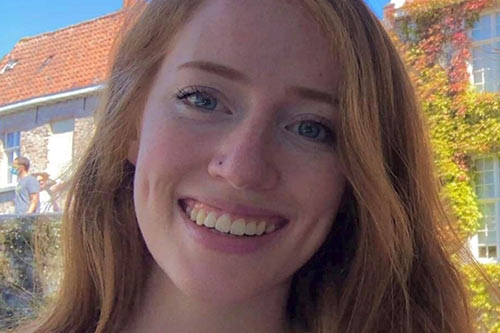
Sarah Roche
“Through my acceptance into the Neurasmus program, I was able to learn vital research and data analysis skills.”
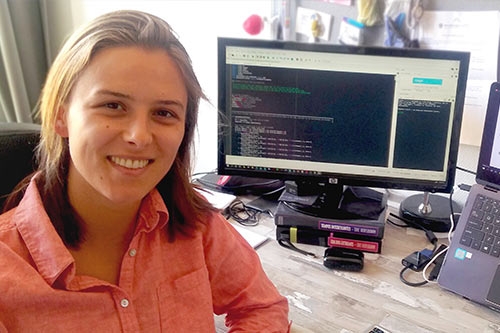
Eduarda Centeno
Stay connected.
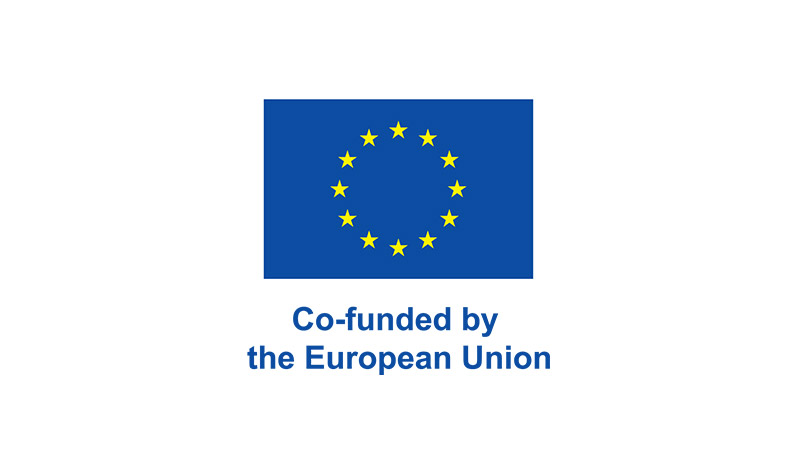
5 more years of funding by the EU.
Sep 1, 2021
This is our great pleasure to announce that our new Neurasmus application has...

Mariana Cerdeira – TEDx
Jul 6, 2021
Mariana Cerdeira, a Neurasmus Alumni,...

Why you feel tired while stuck in traffic – Buzzfeed
Our alumnus Sahana Srinivasan recenlty worked with Buzzfeed on a video on the...
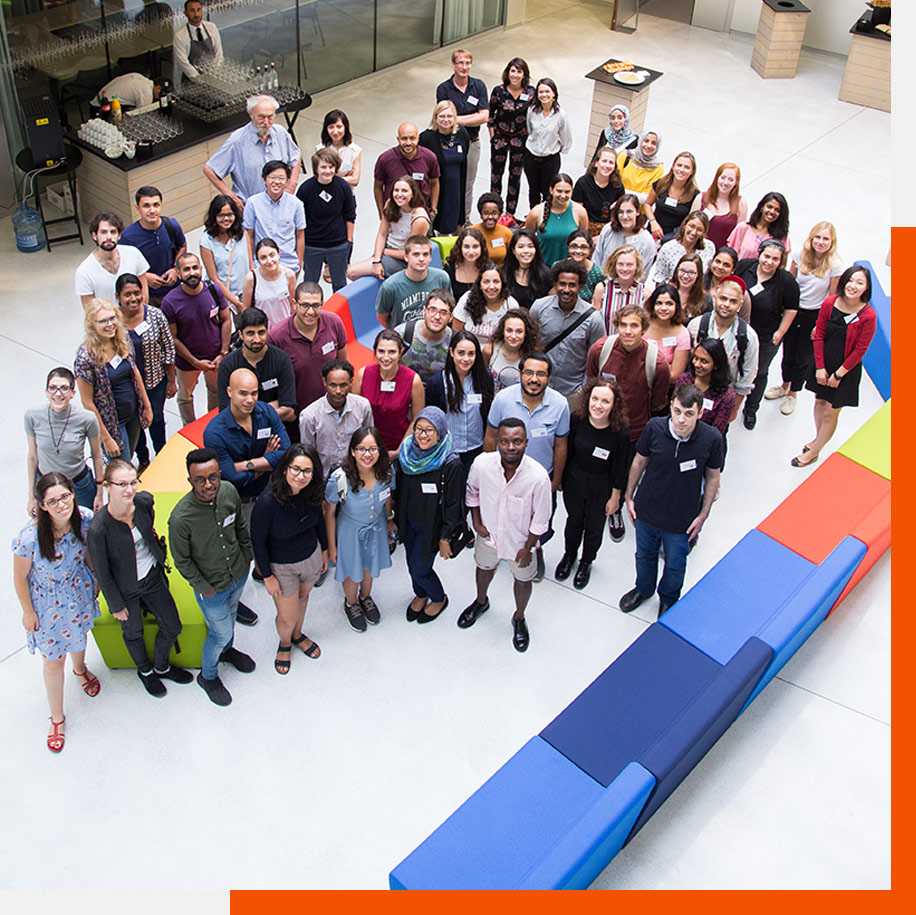
Our network

Join neurasmus today !

- International Max Planck Research School (IMPRS) for Brain and Behavior
- Posted on: 2 September 2024
Fully-funded PhD Positions in the International Max Planck Research School for Brain and Behavior
Job information, offer description.
Join our fully-funded international PhD program in neuroscience! Learn how brain circuits are linked to interesting animals behaviors and be part of the next generation of outstanding neuroscientists!
The International Max Planck Research School for Brain and Behavior is a unique collaboration between the Max Planck Institute for Neurobiology of Behavior – caesar (MPINB), the University of Bonn, and the German Centre for Neurodegenerative Diseases (DZNE) in Bonn. It offers a completely funded international PhD training and research program in neuroscience in Bonn, Germany. The focus of the program is neuroethology.
We offer an exciting opportunity to outstanding Master's degree holders (or equivalent) from any relevant field (life sciences, mathematics, physics, computer science, engineering, etc.) to be immersed in a stimulating environment that provides novel technologies to elucidate the function of brain circuits from molecules to animal behavior. The comprehensive and diverse expertise of the faculty in the exploration of brain-circuit function using advanced imaging and optogenetic techniques combined with comprehensive training in fundamental neuroscience provides students with an exceptional level of knowledge to pursue a successful independent research career.
IMPRS for Brain and Behavior has currently 19 laboratories with an enormous variety of research projects being carried out. Successful candidates can choose to do lab rotations in the first six months of their PhD.
Doctoral candidates receive both theoretical training and hands-on training in a large range of cutting-edge techniques. In addition, they are exposed to a variety of research areas all touching on how sensory information is encoded in neural circuits and is ultimately transferred to behavior.
The application period started on 1 August 2024. Please apply online before 1 November 2024 .
Exceptional candidates will be invited to attend an online selection symposium in February 2025.
Where to apply
Requirements.
You can apply if you meet the following requirements:
- Master’s degree (or equivalent) in any relevant field (life sciences, mathematics, physics, computer science, engineering, etc.)*
- Fluency in written and spoken English
- Strong motivation to pursue a career in science
- Passion for neuroethology
Note: The right to confer degrees remains with the University of Bonn, and you must meet all the admission and degree requirements of the faculty where you choose to study.
*Master's students who will obtain their degrees before October 2025 can apply.
We are committed to diversity and equal opportunity for all applicants.
Additional Information
- Apply the latest innovative neuroscience techniques to fundamental neuroethology questions
- Neuroscience Boot Camp
- Possibility of lab rotations
- Mentoring and guidance by a Thesis Advisory Committee
- A multitude of training opportunities
- International and administrative support
- Fully-funded PhD positions are available
- Master’s degree (or equivalent) in any relevant field (life sciences, mathematics, physics, computer science, engineering, etc.) > has to be awarded before October 2025
Excellent candidates will be invited to an online Selection Symposium in February 2025.
The curriculum of the IMPRS comprises both theoretical and practical hands-on training elements divided into mandatory and optional courses. The range of expertise of the faculty provides rich coverage of the theory and methodology required for cutting-edge neuroscience research. The curriculum is structured in line with the graduation requirements of the degree-granting institutions (University of Bonn Faculty of Mathematics and Natural Sciences as well as the Faculty of Medicine). IMPRS for Brain and Behavior is a four-year program, and the program language is English.
The main curriculum elements are:
- Neuroscience Boot Camp
- Lab Rotations
- “Classic Papers in Neuroethology” Reading Course
- Project Proposal and Thesis Advisory Committee (TAC)
- Annual Progress Meetings
- International Conferences
- IMPRS PhD Student Retreat (annual)
- Complementary Skills Courses
Work Location(s)
Share this page.

IMAGES
VIDEO
COMMENTS
Physiology, Pharmacology and Neuroscience. Ph.D. / Full-time, Part-time / On Campus. 30,833 EUR / year. 4 years. University of Bristol Bristol, England, United Kingdom. Ranked top 0.5%. Top 0.5% of Universities worldwide according to the Studyportals Meta Ranking.
Toxicology 376. Virology 706. Wildlife and Fisheries Management & Conservation 731. Zoology 753. Below is the list of 100 best universities for Neuroscience in Europe ranked based on their research performance: a graph of 79.6M citations received by 2.61M academic papers made by these universities was used to calculate ratings and create the top.
Best Universities for Neuroscience and Behaviour in Europe - U.S. News 2022 Rankings. University College London (UCL), the UK. University of Oxford, the UK. Karolinska Institute, Sweden. University of Cambridge, the UK. King's College London, the UK. VU University of Amsterdam, Netherlands.
Porto, Portugal. Learning type (s): In Person. Language (s): English. Duration: 4 years. Degrees available: PhD. Programme website. Domains: Cognition and Neural Network, Neurogenesis and Development, Neurons and Glia: Intrinsic Properties, Cell Biology and Cell Types. Subdomains: Cognitive development and aging, Gene expression and regulation ...
The EPFL PhD Program in Neuroscience (EDNE) provides its students with extensive training in various fields of neurosciences, ranging from molecular, cellular, circuit, computational, cognitive and behavioral neurosciences to neuroprosthetics and neuroengineering.. Students matriculate in the highly dynamic and interdisciplinary environment of the EPFL, in the Brain Mind Institute, the Neuro-X ...
Basic Human Neuroscience. We can now offer a seven (7)-week course in Basic Human Neuroscience for doctoral students without a basic training in biomedicine/medicine. This course follows the curriculum of the biomedicine programme at Karolinska Institutet. It will be given every fall semester and will be announced in the course catalogue.
The DPhil in Clinical Neurosciences will develop your skills through a range of research and practical training. NDCN incorporates six divisions each of which hosts world-leading programmes in basic, translational and clinical research. Centre for Prevention of Stroke and Dementia. Division of Clinical Neurology. MRC Brain Network Dynamics Unit.
Presentation. Along with outstanding research teams, the Graduate School of Neuroscience promotes: interdisciplinarity, covers basic research, engineering, preclinical and clinical research in the field of neuroscience. It benefits from strong international networks and from SMARTS-UP grants to welcome international students and supports Master ...
The Institute of Cognitive Neuroscience (ICN) PhD students are based in a truly interdisciplinary institute. The ICN is situated within the School of Life and Medical Sciences with staff members belonging to different research divisions and departments. This diversity provides a unique learning and research environment which is also much valued by employers.
We represent a selection of German neuroscientific graduate schools and provide information about 29 international programs at a glance. ... European Neuroscience Institute MSc/PhD/MD-PHD Neurosciences Program Contact: [email protected]. LEIPZIG. Max Planck Institute for Human Cognitive and Brain Sciences
PhD in Neuroscience - Delineating the organisation of the human vagus nerve for selective neuromodulation. University College London Department of Medical Physics & Bioengineering. 1. About us. The Department of Medical Physics and Biomedical Engineering is one of the largest departments of its kind in the UK. Read more.
Study a Neuroscience PhD programme at King's: Research project topics span from molecules to mind, including clinical and translational aspects to make a meaningful differences in people's health. Be part of an international and diverse student body, studying at one of three central London campuses, with an active student Neuroscience Society ...
The Network of European Neuroscience Schools (NENS) Founded in 2003, the Network of European Neuroscience Schools (NENS) connects neuroscience graduate school programmes in Europe, providing a platform for interaction and exchange of best practices. NENS now represents over 200 graduate neuroscience schools and programmes across 28 European ...
Top Neuroscience Schools in Europe. 1. King's College London. Study Program | Tuition Fees | Scholarships. Location: England | Degrees Offered: Bachelor's, Master's, and Ph.D. King's College London was founded in 1829 but only started offering neuroscience and psychology courses in 1948. It quickly became the global leader in ...
PhD Program: We offer a fully-funded 5-year PhD Program in most subfields of cognitive science (including Linguistics, Philosophy, Cognitive Social Science, Psychology, Neuroscience, Modeling). Unlike most PhD programs in Europe, and at the image of PhD programs in North-America, admission in this program does not require an MA-level degree.
PhD in Clinical Neurosciences. Please ensure you check the Department of Clinical Neurosciences website for up-to-date information on projects and funding. Postgraduate training is very different from undergraduate courses. It is based on individual needs and abilities, and is designed to help you to think clearly, originally and practically ...
1 of 1. Find the best PhD programmes in the field of Neuroscience from top universities in Germany. Check all 16 programmes.
Neurasmus - A European Master's Program: ... Given Berlin is a major neuroscience hub, we had the opportunity to acquire hands-on experience in various labs and work with world-class scientists during lab rotations. ... "The MedNeuro PhD program allows one to study the fascinating topics within Neuroscience while being part of the Charité ...
This PhD Programme has the aim of train researchers in the fields of basic and applied Neuroscience, Clinical Psychology and Psychiatry, with an interdisciplinary approach. With this perspective, the programme includes researchers from different knowledge areas from the fields of Neurobiology, Cognitive Neuroscience, Clinical and Health ...
The PhD in Neuroscience welcomes graduates in biology, biochemistry, medicine, psychology, biotechnology, veterinary medicine, as well as students from non-biology fields (like physics, maths and computer science) interested in neuroscience. Students with a degree within the European Higher Education Area with a minimum of 300 ECTS are eligible.
Discover master. The Neurasmus master program is a full-time Neuroscience study program offering a unique interdisciplinary and integrated approach of normal brain functions and diseases. It strongly emphasizes training in cutting-edge techniques in all major topics of brain research, from molecules to cognition.
A Master's in Neuroscience opens up a wide range of career opportunities in research, pharmaceutical science, clinical practice, and more: Research-based roles: Neuroscientist, Pharmaceutical Researcher; Clinical-based roles: Clinical Neuropsychologist. Student loans to cover up to 100% of tuition and living costs.
The Program in Neuroscience (PiN) is a full-time lab-based PhD program comprising a core curriculum that encompasses the interrelated disciplines of neuroscience, elective requirements in computational neuroscience and neuroanatomy, and training across multiple research areas and techniques through first-year lab rotations and dissertation research supported by a robust advising structure.
Join our fully-funded international PhD program in neuroscience!Learn how brain circuits are linked to interesting animals behaviors and be part of the next generation of outstanding neuroscientists! ... 1 Nov 2024 - 23:59 (Europe/Berlin) Type of Contract. Temporary. Job Status. Full-time. Is the job funded through the EU Research Framework ...